

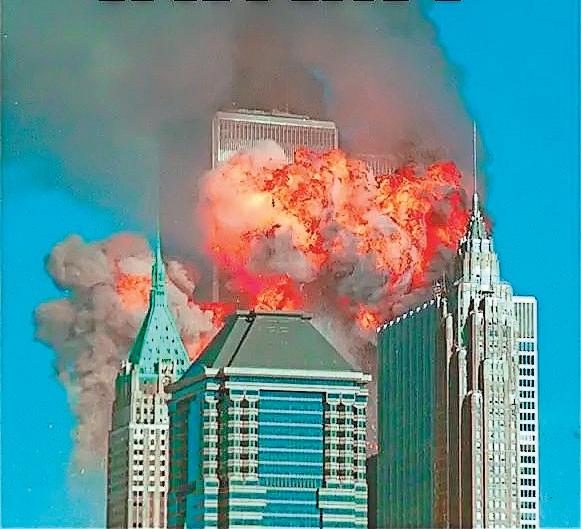




By Yoav Limor, Israel Hayom
The joint announcement by the IDF and the Shin Bet on Tuesday about the elimination of Hamas’ senior leadership intentionally omitted two key details.
•The first was the identities of the targets, pending confirmation of their deaths.
•The second was the location of the strike. The name “Qatar” was left out deliberately. Israel may yet need Doha’s involvement in the next stages of its endless war against Hamas.
The statement stressed the responsibility of those targeted for the October 7 massacre and for directing the war. Yet revenge alone, however strong the urge, was unlikely to be the main reason Israel decided to strike Hamas leaders abroad. They could have been eliminated at another time, perhaps in a more discreet manner.
Prime Minister Benjamin Netanyahu’s attempt to link the strike to the Jerusalem attacks two days earlier also appeared tenuous. Israel has suffered many terror attacks in the past, and no evidence has tied the Jerusalem assailants to Hamas. The decision to act in Qatar seems to have stemmed from three main considerations.
The first was an unusual, possibly onetime, gathering of senior Hamas leaders in Doha, enabling Israel to hit them all at once.
The second was Israel’s growing recognition that with these figures – men living in luxury abroad, untouched by the suffering and destruction in Gaza — it would be nearly impossible to reach any agreement close to Israel’s minimal conditions for ending the war.
The third was the deterrent value of striking in Qatar, long seen as off-limits because of
See Rare opportunity on page 9
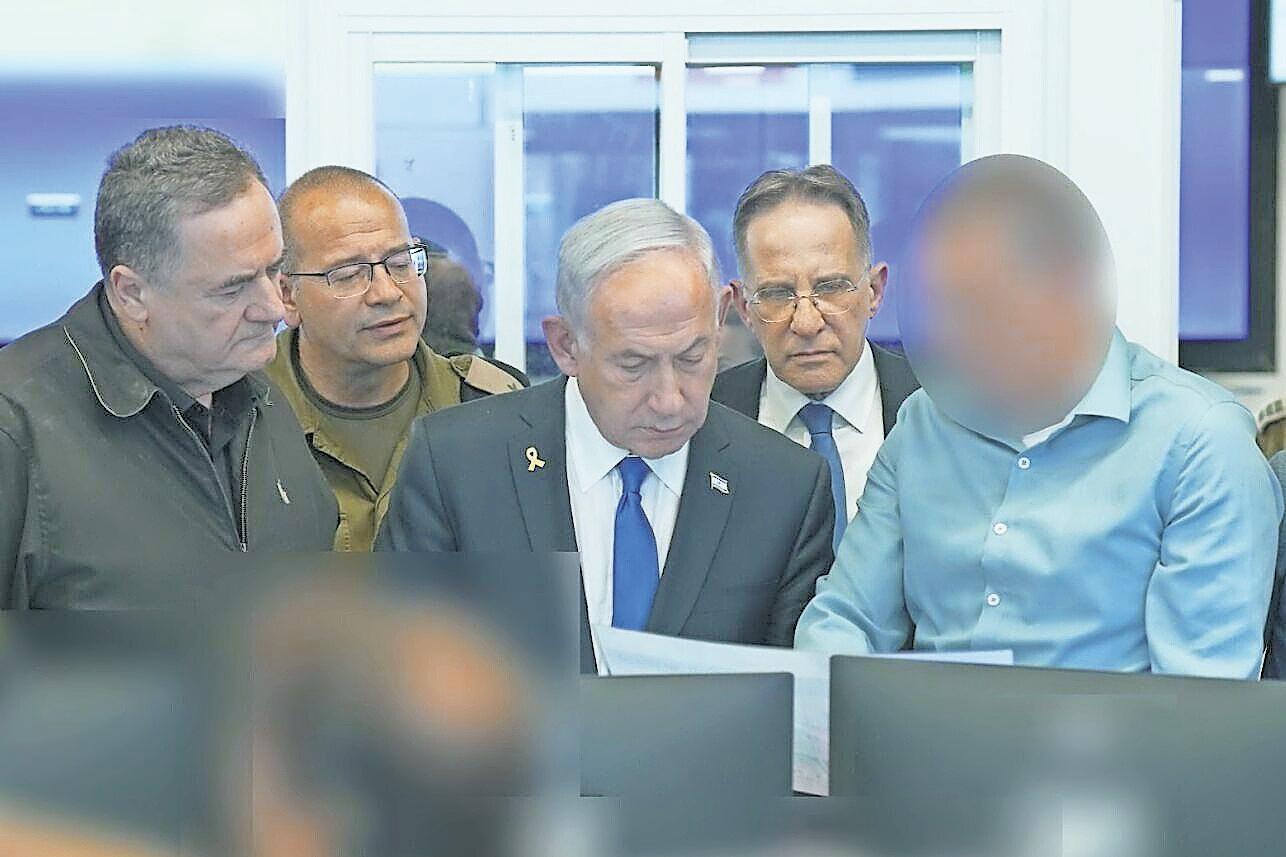
By Yaakov Lappin, JNS
The dramatic Israeli strike on Tuesday targeting a meeting of Hamas’ senior political-terrorist leadership in Doha, Qatar, codenamed “Summit of Fire,” represents a paradigm shift in the nearly two-year-long war, moving to strike the terror group on the territory of one of its chief patrons and decision-makers.
The strike targeted a meeting attended by the terror group’s top echelon, including, according to the Saudi Al-Hadath channel, senior politburo members Mohammed Darwish (the current chairman of the politburo), Khalil al-Hayya, Zaher Jabarin, known as the former head of Hamas’s finances, Khaled Mashaal, former politburo chairman, as well as additional senior members Ghazi Hamad, Mousa Abu Marzouk and Hussam Badran.
The strategic importance of the operation was signaled by a photo released by the Shin Bet, showing Israeli Prime Minister Benjamin Netanyahu and Defense Minister Israel Katz inside the intelligence organization’s special operations command center from which the
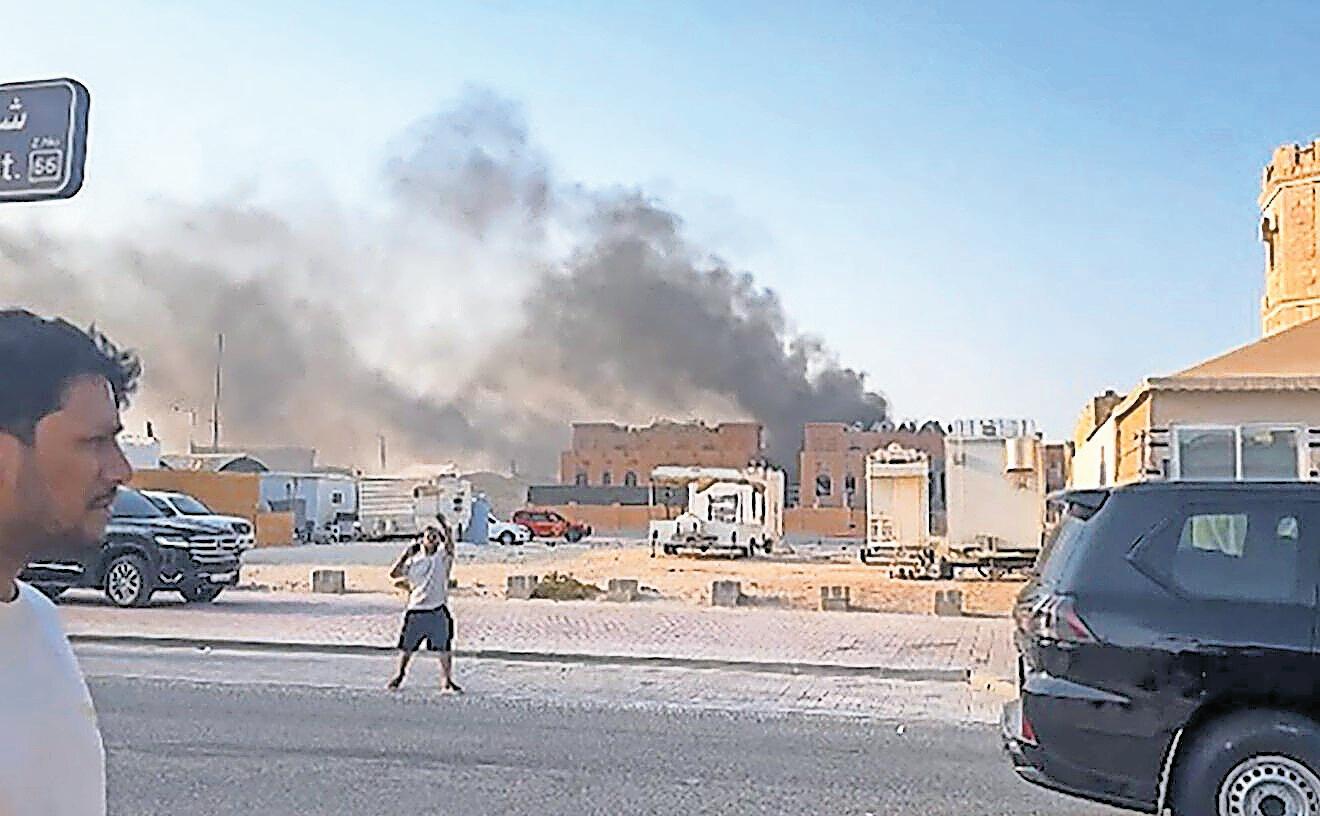
joint Shin Bet-IDF mission was managed.
The IDF and Shin Bet stated that the leaders targeted in Doha have been directing the war, are directly responsible for the Oct. 7, 2023, massacre, and that measures were taken to mitigate harm to civilians.
Oded Ailam, a former head of the Counterterrorism Division in the Mossad and currently a researcher at the Jerusalem Center for Security and Foreign Affairs (JCSFA), told JNS that the timing of the strike was driven by several factors, including recognition in Israel that the hostage negotiations had reached a dead end.
“The timing now is mainly from the recognition on the Israeli side that we are reaching a stalemate in the negotiations conducted by the existing external leadership, mainly Khalil al-Hayya, Zaher Jabarin, and Hussam Badran,” Ailam said.
“Paradoxically, they are presenting a rigid stance, which is not typical for external leadership. Usually, the internal leadership is more rigid and determined, but here they are

In one dramatic strike, Israel has upended the rules of the game. Hours after Hamas proudly claimed responsibility for the bus bombing that killed six Israelis in Jerusalem on
Sunday, Israeli Air Force F-15s and F-35s delivered justice not in Gaza, not in Lebanon, but in the capital of Qatar, Doha, the gilded refuge of Hamas’s leadership. For years, Qatar has bankrolled Hamas, sending suitcases stuffed with cash to fund the terror tunnels of Gaza and offering sanctuary to its commanders. While Hamas paraded its hatred of Jews openly, Qatar perfected the art of taqiyya, the calculated deception of pretending to mediate peace while hosting, protecting,
and enabling jihad. Its state-funded propaganda arm, Al Jazeera, has done more than any Arab army to delegitimize Israel, promoting the libel of “genocide” and building an entire front of psychological warfare against the Jewish state. That sanctuary is now rubble. Reports indicate that much of Hamas’s top brass — Khalil al-Hayya, Zaher Jabarin, Musa Abu Marzouk, Husam Badran, Muhammad Ismail Darwish and perhaps even Khaled Mashaal — were
killed in the strike. These were not minor figures. They were Yahya Sinwar’s heirs, masterminds of Oct. 7, 2023, and the men who used the hostages as human bargaining chips. The consequences are enormous. The hostage deal Hamas’s Doha-based leaders sought to manipulate may be dead, but so is their leverage. Israel has again demonstrated its doctrine: what happened once will not be allowed to happen again.



By Shimon Sherman, JNS
A recent wave of headlines has reinforced the growing narrative that the Israeli military deliberately targets journalists in Gaza. The recent airstrike on Nasser Hospital in Khan Yunis became the latest example, with both Hamas and major international outlets alleging that Israel intentionally killed five journalists in a strike that left 20 civilians dead.
Global condemnation followed swiftly, prompting Prime Minister Benjamin Netanyahu to express regret, calling the incident a “tragic accident.”
The next day, the Israel Defense Forces stated that six of those killed were known Hamas operatives and that the strike targeted a location adjacent to a Hamas surveillance camera being used to track troop movements.
Multiple “journalists” who were killed on site did have terror affiliations.
Mohammed Salama of Al Jazeera, who was killed at Nasser Hospital, was filmed crossing into Israel on Oct. 7, 2023, holding a Palestinian flag and standing on an Israeli tank holding a belt of machine gun ammunition.
Mariam Abu Daqqa, who was also killed at Nasser Hospital and was claimed by the Associated Press, was an employee who taught “journalism” courses for the Hamas-run Government Media Office.
While the media operatives killed at Nasser hospital were circumstantially linked to terror operations, there are dozens of cases where “journalists” were named by the IDF as active terror operatives or even commanders in Hamas battalions.
Anas al Sharif, killed in mid-August while posing as a journalist, was revealed to be a Hamas cell leader responsible for rocket attacks.
Hossam Shabat was targeted by the IDF in March due to his involvement in attacks on Is-
raeli troops near Beit Lahia in northern Gaza, but claimed to be a correspondent, leading to international condemnation.
Ismail alGhoul claimed to be a field reporter and was killed in March, after the IDF revealed that he was a Nukhba operative in Hamas involved in the Oct. 7 attacks.
Ismail Abu Omar wrote for AlJazeera but was shown to be a deputy company commander in a Hamas battalion who participated in the Oct. 7 attacks.
Finally, Hamza Dahdouh, eldest son of the Al Jazeera bureau chief and a journalist on the Al Jazeera payroll, was killed in a drone strike targeting a vehicle containing journalists in Khan Yunis. The group was filming the aftermath of a previous strike.
He died alongside freelance journalist Mustafa Thuraya. The IDF later showed that Thuraya was a Hamas deputy squad commander and explained that Hamza was affiliated with Palestinian Islamic Jihad’s electronic engineering unit and had been a commander in its Zeitoun Battalion. The squad was actively “operating an aircraft that posed a threat to IDF troops” at the time of the strike.
The listed examples are but a narrow representation of a broader phenomenon. Hamas’ political wing controls who is recognized as a journalist in the territory, wit press credentials issued through the group’s Government Media Office.
While reported internationally as members of the press, the majority of individuals included in global casualty tallies fall into the category of Hamas-affiliated operatives rather than independent reporters.
Professor Eytan Gilboa, founder and head of the School of Communications at Bar-Ilan University in Ramat Gan, explained that it is impossible to characterize almost any of the activity going on in Gaza right now as “legitimate journalism.”
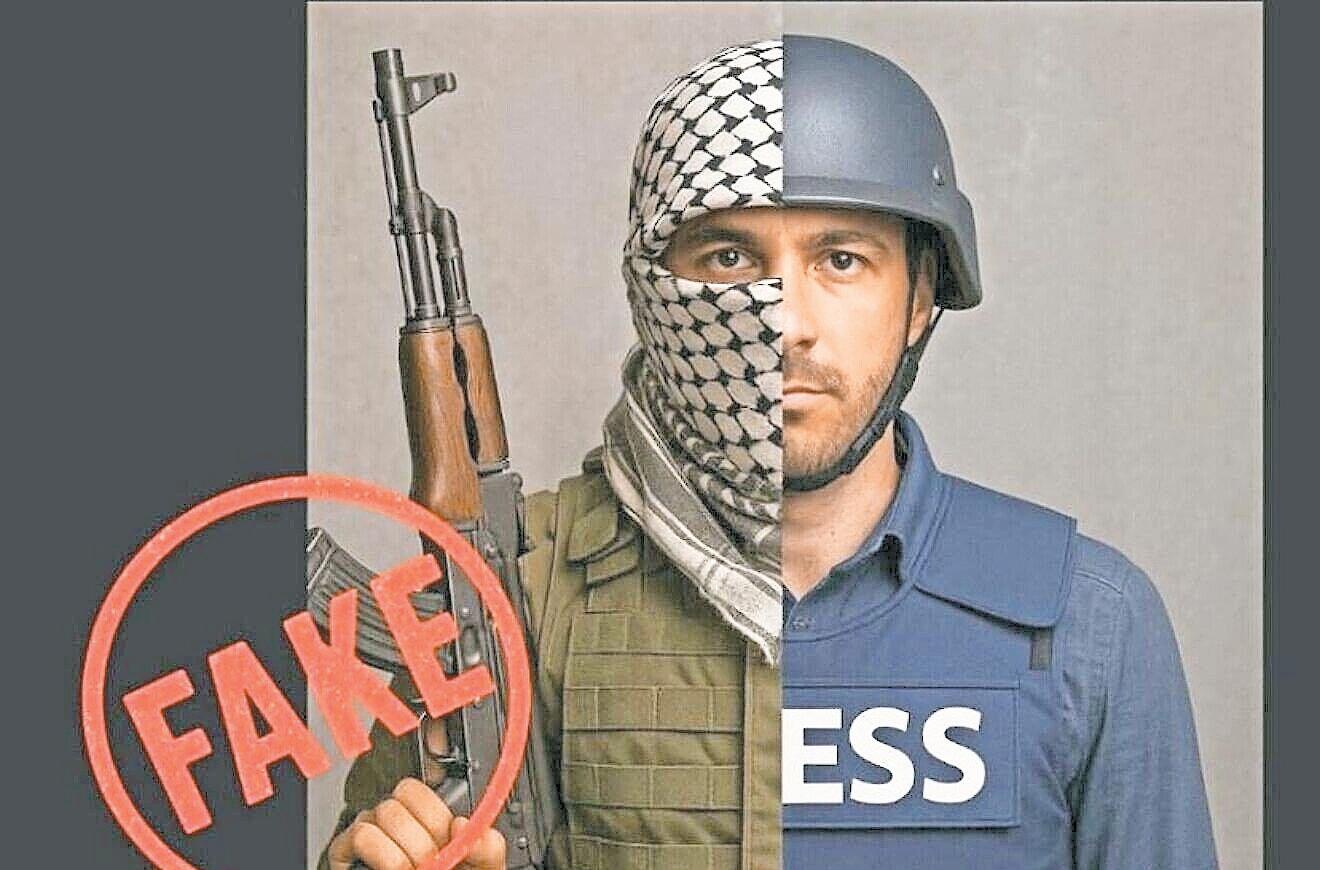
“It is not enough to call yourself a journalist and to wear a vest that says ‘press’ on it to be a real journalist,” Gilboa said. “There are no real journalists in Gaza, just like in Russia, China, North Korea or Iran.
“Almost all journalists in Gaza either work for Hamas media or work for Al Jazeera, which is not a legitimate news organization and with many terror ties, or they work for Western media organizations like Reuters or the New York Times, in which case they are deeply censored and only are allowed to report Hamas-approved content,” he said.
“Most often, they are employees of Hamas, doing work for Hamas, meaning they are not journal-
ists but propagandists,” Gilboa added. The conflation of accredited journalists with local reporters has led to a massive inflation of the number of so-called journalists killed in Gaza. Since the start of the war, the United Nations has claimed that 242 “journalists” have been killed in Gaza. However, there have been zero cases of foreign accredited journalists killed in Gaza. Every media operative claimed by the UN is either unaccredited or accredited through the Hamas-run Government Media Office. While no statistics exist on the percentage of killed journalists who are known to be terror operatives, there
Continued on next page












are dozens of publicly known cases. By contrast, dozens of accredited foreign journalists were killed in Iraq and Syria, and six have been killed so far in Ukraine.
While Western militaries have traditionally attempted to protect legitimate media operations, enemy-affiliated media operatives have often been seen as valid targets.
US and NATO forces recently bombed enemy media infrastructure in Iraq, Afghanistan, Syria and Kosovo. US forces further directly targeted Al-Qaeda, Taliban and ISIS “journalists” who were affiliated with the terror groups’ media operations.
Former Israeli Deputy Foreign Minister Danny Ayalon, chairman of the Silver Road Capital financial advisory firm, explained that in his view, propaganda and media operatives, working with Hamas, were taking part in the military hostilities.
“In WWII were Goebbels and the Nazi propaganda machine a legitimate target? Of course they were, and they were even more dangerous than some military targets. Of course, this needs to be handled carefully and professionally, but overall, this could definitely be a threat,” Ayalon said.
According to experts, the careful formation of the “Israel kills Journalists” narrative is not an organic process but the product of a concentrated media operation.
“Hamas is very deliberate and sophisticated in its propaganda war,” Ayalon said. “They are sending out messages, pictures and videos every day; they are very active on social media. That part of Hamas is still functional,” he added.
Hamas operates a disciplined propaganda machine that functions as an extension of its political and military apparatus. The group controls Al-Aqsa TV and affiliated radio, print and online platforms, alongside dozens of Telegram channels distributing battlefield footage and casualty lists. Media teams embedded with fighters record op-
erations and publish material within hours, often highlighting individuals identified internationally as journalists. Still images, videos and statistics are then amplified by sympathetic outlets and activist networks.
The group also exploits global social media platforms. Videos of combat operations, funerals and civilian casualties are uploaded to TikTok, X and Instagram within minutes, packaged for viral distribution. Messaging apps such as WhatsApp and Telegram further extend circulation through private networks.
Much of this content is reproduced by international media without attribution, granting Hamas narratives a far wider reach. Al Jazeera serves as a key conduit, broadcasting Hamas-sourced material and framing it as frontline reporting. From there, images and figures are picked up by legacy outlets such as the BBC, CNN and Reuters, which often rely on Hamas-credentialed local stringers.
Over time, this system has generated a set of broad narratives that dominate global discussion of the war. These include claims that Israel systematically targets journalists, that Gaza faces imminent famine and that Israeli military operations constitute genocide. Additional themes portray Israel as deliberately striking hospitals, intentionally killing children and targeting civilians at aid distribution sites. Evacuation orders are frequently described as ethnic cleansing or a second “Nakba.”
Each of these macro-narratives originates in Hamas-controlled channels, is amplified by Al Jazeera, and then reinforced by Western coverage, often without independent corroboration.
According to experts, Israeli policies restricting journalists’ access to Gaza have increased Hamas’ ability to control media narratives emerging out of the strip.
“Israel does not let journalists in because it could put them in harm’s way and might create a logistical issue for the military,” Ayalon explained. “However, as long as there are these restrictions from Israel, it generates suspicion and allows
Hamas to feed the international media whatever they want,” he added.
Gilboa said that in his view, this policy was doing more harm than good for Israel’s war effort.
“Israel’s policy of not letting journalists into Gaza is making things more complicated. Israel says it is worried for the journalists’ safety, but it seems to me it is doing a lot of harm to Israel and it would be easier to let foreign press in and to have them be responsible for their own safety,” he said.
Since the start of the war, foreign correspondents have been largely barred from entering the Strip independently. Journalists seeking access are required to embed with the Israel Defense Forces under strict conditions, leaving coverage inside Gaza almost entirely in the hands of local reporters credentialed by Hamas.
This, among other factors, has led to international outlets relying heavily on Hamas-controlled material, fueling accusations against Israel as casualty figures and accounts originating from Hamaslinked sources circulate widely with little independent verification.
In addition to restricted journalistic access to Gaza, according to experts, Israel’s limited public relations effort has allowed Hamas to seize the initiative in the informational battleground. The Public Diplomacy Ministry, established only months before the war, was shut down in October 2023, with its budget redirected to civilian rehabilitation projects near Gaza.
Responsibility for international messaging has since been split between the Foreign Ministry, the Prime Minister’s Office and the IDF Spokesperson’s Unit, with no central coordinating authority. A National Public Diplomacy Directorate was set up under the Prime Minister’s Office, but it has operated with minimal staff, no permanent director, and reliance on freelance spokespeople.
In 2025, the government approved an unprecedented budget of roughly 545 million shekels ($150 million) for the Foreign Ministry’s public diplomacy efforts, more than 20 times the pre-war

allocation, but by midyear, only 60 million shekels had been spent, reflecting bureaucratic delays and weak operational capacity.
Other arms, such as the Israeli Government Advertising Agency (Lapam) have faced mass resignations and stalled recruitment.
The result is a fragmented system in which Hamas communicates daily and in real time, while Israel’s official messaging remains slow, underfunded, and poorly coordinated.
“Israel does not have a streamlined public relations operation. It is all broken up, and right now, we especially need a strong coordinated response,” Ayalon said. “It is very difficult to coordinate a unified media campaign without someone giving directions, making sure everyone is sending out the same message, and setting clear policy.”
There is broad agreement that public diplomacy is a crucial theater of the war and one in which Israel is performing particularly badly. In that context, the spread of the narrative on Israel targeting the press is but a symptom of a larger issue.
“There is gross negligence by the government in handling this issue. Israel needs to immediately invest in this critical part of the war. We need a strong push both in social media and in legacy media to fight back against the Hamas propaganda,” Ayalon said.
He added that Israel is well-positioned to take the upper hand in this aspect of the war. “We need a clear message, we need more media access and stronger spokesperson teams, and we need a lot more online presence. There is no reason why we should be losing here. We are global technology leaders and should be much stronger than Hamas here,” Ayalon said.
Gilboa said, “Israel has no organized strategy of public diplomacy. There are no offices, no system, no manpower and no resources. The Israeli government has not understood that military campaigns need to happen together with information campaigns. They do not understand that hard power is not enough.”
Shimon Sherman covers global security, Middle Eastern affairs, and geopolitical developments.


By Aaron Bandler, JNS
Iraqi-based Ravan Al-Taie, whose social media history reportedly includes posts referring to the “fake news of ‘rape attacks’ on Oct. 7” and stating that Israel has committed “hundreds of genocides,” is competing for a seat on the Wikipedia board of directors to — as she puts it — “help ensure that decisions reflect the diversity of our global community.”
“It should raise every red flag imaginable when a would-be Wikimedia board member, guardian of one of the world’s most influential information platforms, is on record pushing anti-Israel propaganda and peddling canards,” Vlad Khaykin, executive vice president of the Simon Wiesenthal Center, told JNS.
Al-Taie’s election to the board would corrupt “the integrity of Wikipedia and its noble mission of providing impartial knowledge for all” at a time when “Wikipedia is bleeding credibility thanks to activist editors smuggling anti-Israel bias into its pages,” said Khaykin.
“Wikimedia needs to decide. Is it still in the fact business, or is it handing the keys to the conspiracy theorists?” he said.
Daniel S. Mariaschin, CEO of B’nai B’rith International, told JNS that Al-Taie “should be disqualified from the get-go,” questioning why anyone “would assume Wikipedia’s impartiality with a board whose membership includes Al-Taie, who subscribes to myth-based view of history and the present.”
A former administrator for the Arabic-language Wikipedia, Al-Taie, who is employed by an oilfield services company, is one of six candidates running for two open seats on the foundation’s board.
Since-deleted social media posts purportedly by Al-Taie have surfaced, including reference to Israel committing “hundreds of genocides.”
An Israeli diplomat in Britain posted a screen-

shot of Al-Taie’s referring to the “fake news of ‘rape attacks’ on Oct. 7.”
“Over 50% of British adults use Wikipedia for research. Right now, its parent company, the Wikimedia Foundation, is considering Ravan Jaafar Al-Taie to join their board of trustees,” the diplomat wrote. “Does rape denial fall in line with your trustee code of conduct, Wikimedia.”
Al-Taie appears to have deleted her account on the X social network recently.
Shlomit Aharoni Lir, a research fellow at the University of Haifa who called attention to what
she described as former social media posts of AlTaie’s, told JNS that she thinks the Iraqi’s candidacy is “very serious.”
Al-Taie’s deleted posts violate the foundation’s universal code of conduct, which “bans hate speech, discriminatory language and the use of symbols or content meant to intimidate, harm or marginalize people, as groups or individuals,” the researcher told JNS.
“A trustee, who has publicly denied documented atrocities, circulated antisemitic tropes and erases Israel by labeling the entire territory
as ‘Palestine,’ thus denying Jewish self-determination, violates the universal code of conduct and demonstrates the kind of bias the foundation was warned about,” she said.
Al-Taie’s “presence at the board table would legitimize extremist views and further damage the board’s credibility, making it complicit in the very manipulation of knowledge it is supposed to oppose and has failed to do so,” Lir said.
The Wikimedia board “directs and oversees the foundation’s activities” and defines the “strategy, long-term objectives and the approaches needed to reach them,” she said.
“Over the past 16 years, I’ve made more than 22,000 edits and created over 1,000 articles, with a strong focus on bridging content gaps in topics related to Iraqi culture, women’s biographies and underrepresented communities,” AlTaie states. “My goal has always been to make knowledge accessible, relevant and reflective of the diversity in our region.”
Members of the foundation’s board serve three-year terms.
Those who had made at least 300 edits on Wikimedia sites — including Wikipedia, Wikibooks, Wiktionary and Wikiquote — prior to July 28, and at least 20 edits between Aug. 27, 2024, and July 28, 2025, can vote for the foundation board between Oct. 8 and 23. (Those who have been banned on any Wikimedia projects are ineligible to vote, per the foundation.)
The foundation intends to release preliminary results after that voting period, and its board aims to confirm new members in December. It had planned on holding voting from Aug. 27 to Sept. 10, but on Aug. 21, its elections and governance committees postponed elections due to “best practices, increased scrutiny the board faces and to reduce uncertainty around candidate eligibility before community members vote.”

mountsinai.org/southnassau
By Canaan Lidor, JNS
The diplomatic spat that recently erupted between Israel and Australia has divided Australian Jews, with some criticizing both their country and the Jewish state, and others singling out only one party.
The main disagreement has to do with a social media post by Prime Minister Benjamin Netanyahu, who on Aug. 19 wrote on X that his Australian counterpart, Anthony Albanese, will be remembered “for what he is: A weak politician who betrayed Israel and abandoned Australia’s Jews.”
The rebuke, unusually harsh for Netanyahu, followed Australia’s announcement that it would recognize a Palestinian state.
Netanyahu wrote to Albanese on Aug. 17, saying this plan “emboldens those who menace Australian Jews, and encourages the Jew hatred now stalking your streets” — a reference to the dramatic rise in antisemitic incidents in Ausrtalia since Oct. 7, 2023.
Later that month, Canberra denied a visa to Simcha Rothman, a prominent Israeli lawmaker from Netanyahu’s right-wing coalition, who was scheduled to meet Jewish community leaders down under. Israel retaliated by denying some Australian diplomats entry visas, preventing them from reaching the Palestinian Authority.
This was the nadir of a relationship that began deteriorating after Oct. 7, 2023, when Albanese’s Labour-led government began demanding that Israel stop its war against Hamas in Gaza.
Rabbi Nochum Schapiro, the president of the Rabbinical Association of Australasia, the country’s main Orthodox rabbinical group, wrote a letter to Albanese that echoed Netanyahu’s message, but stopped short of wading into his row with Netanyahu. “Recognition of a Palestinian state under present conditions would almost certainly intensify antisemitism and endanger the safety and well-being of Australian Jews,” wrote Schapiro.

Robert Gregory, CEO of the Australian Jewish Association, a center-right national community body that was established in 2017 and has thousands of members, backed Netanyahu’s position.
Gregory said Australian Jews “valued” Netanyahu’s position. “I think it helped the Australian Jewish community feel like we’re not alone and that we do have support,” Gregory said of the statements by Netanyahu, Israeli Diaspora Affairs Minister Amichai Chikli, and other Israelis who spoke about Australia’s antisemitism problem.
The Executive Council of Australian Jewry (ECAJ), an umbrella organization representing some 200 Jewish groups in Australia, clearly sees
things differently. In response to Netanyahu’s “weak politician” remark, ECAJ sent Netanyahu a letter protesting his words as “inflammatory and provocative,” adding that they “demonstrated a woeful lack of understanding of social and political conditions in Australia.”
ECAJ also sent a letter to Albanese, saying that his July 30 remarks that Netanyahu was “in denial” about the repercussions of the war in Gaza were “excessive and gratuitously insulting.”
Gregory said he is “somewhat understanding” of ECAJ’s attempt at balance, noting that ECAJ engages with the government regularly to secure communal interests.
DESK of RABBI S.M.
“It looks like this Australian government will be in power for quite some time. So the Jewish community is in a very difficult position. It’s a very hostile government, the most hostile government ever in the history of Australia. And sort of managing those different interests is obviously quite difficult,” said Gregory, a 35-year-old resident of Sydney and a father of one.
Last year, far-left Jews established their own group: the Jewish Council of Australia (JCA). It supports Australian recognition of a Palestinian state and calls Israel’s actions in Gaza an “intensifying genocide.” JCA also condemned a gathering of mayors against antisemitism planned for Sept. 3-5 in the Gold Coast near Brisbane by the Combat Antisemitism Movement as a “far-right” event designed to silence “legitimate criticism of Israel by conflating it with antisemitism.”
Australia saw a fourfold increase in documented antisemitic incidents in 2024 — the steepest rise among English-speaking countries with available data — according to the “J7 Annual Report on Antisemitism 2025,” published in May.
While the US reported the highest number of incidents — 9,354 in 2024, up from 8,873 the previous year — Australia registered the most dramatic relative increase, with reported antisemitic incidents rising from 495 to 2,062.
The spike in antisemitism was both quantitative and marked by an escalation in severity: Incidents included the arson of a Melbourne synagogue in December, vandalism and attacks on Jewish homes, and the March discovery of a van packed with explosives and a list of Jewish targets in a Sydney suburb.
The Australian Security Intelligence Organisation determined Iran was responsible for two arsons: one at Adas Israel synagogue in Melbourne on Dec. 6, 2024, another on a kosher restaurant, in Sydney on Oct. 20, 2024, Albanese said. See Australia on page 23
Note the ACCOLADES from our CLIENTS
RE: SYNAGOGUES and YESHIVOS
Dear Rabbi Leiner,
Thank you for replacing the Insurance for our Synagogue, with a Savings of almost 50%.
B.F. Executive Director
RE: REAL ESTATE CORPORATION
Dear Rabbi Leiner, You and Your Experts, have saved our Corp. Very Substantial Sums, with your Quality Insurance Replacement on our Real Estate Buildings. Thank you, M.B. Pres.
RE: HOMEOWNERS INSURANCE
Dear Rabbi Leiner, Our Insurance Company Refused to renew our Insurance Homeowners Policy. However, You and Your Experts were able to Secure for us other Insurance Coverage, even at a much lower Premium, than the Prior Canceled Insurance Policy. Thank You So Much. Mrs. D.S.
Continued from page 2 its international standing and its central role as a mediator.
This dilemma is not new. About a year ago, then Shin Bet director Ronen Bar recommended assassinating Hamas’ leadership in Doha. The political echelon rejected the idea, as it did subsequent proposals. The reasoning shifted over time, but the bottom line remained the same — until Tuesday afternoon. What appears to have tipped the balance, and may have been the primary driver, was a green light, perhaps even explicit approval, from President Donald Trump’s administration.
Israel would not have struck in Qatar without such authorization. The US has major assets there, chiefly the largest US Air Force base in the Gulf, used by CENTCOM, which was also targeted by an Iranian retaliatory strike after Israel bombed nuclear sites in June. Washington also has extensive economic interests in Qatar, including personal
business ties of Trump and his family.
Rumors have circulated in the Arab world that Trump’s proposal to end the war was in fact a trap, prompting Hamas leaders to gather in Doha — where they met their deaths.
The details will likely emerge soon, both because Trump is known for difficulty keeping secrets and because of Qatar’s reaction.
The gas-rich emirate has long acted as a haven for leaders of terrorist organizations — Hamas, and in the past al-Qaida, the Taliban and others – while buying itself influence as a mediator capable of dealing with all sides.
This strike signals that the façade is over. For Qatar, the implications are far-reaching. It has projected stability while pursuing global ambitions, such as a future Olympic bid after hosting the World Cup three years ago.
Qatar will certainly condemn the assassination, but it remains to be seen whether it will sever ties with Hamas or continue backing the group ideologically aligned with the Mus-
lim Brotherhood. That will become clearer in the coming weeks, especially if Doha persists in mediating ceasefire talks or distances itself from them.
Even if Doha’s outrage is genuine, pragmatism is likely to prevail, since Qatar wants to maintain its regional role. This is especially true as the strike strengthens its rival Egypt, long openly hostile to Hamas. But the operation’s consequences go well beyond Qatar.
•The first is the fate of the hostages. It is hard to assess whether such a blow to Hamas immediately endangers their lives. Hostages who were released have described how their treatment shifted according to events on the ground. The hope is that Hamas, or what remains of it, will stay pragmatic enough to continue viewing them as bargaining chips.
•The second is the war’s trajectory. It is unclear who now leads Hamas. Israel has eliminated much of the group’s senior military and political leadership. In Gaza, only mid-level
commanders remain, such as Ez al-Din Haddad, who now face responsibilities far beyond their experience. Despite Israel’s determination to further weaken Hamas, it also needs someone to engage with on the other side, in order to advance its goals: ending the war, securing the hostages’ release, demilitarizing the Gaza Strip and establishing a new administration there without Hamas.
Two side notes. First, the execution: the Shin Bet’s intelligence was outstanding, and the Israeli Air Force again demonstrated its reach, adding another country to its list of operational theaters over the past two years. Second, the debate over whether Qatar is an enemy state appears settled.
Israel does not usually strike openly in countries it does not consider enemies, operating covertly instead. This overt decision was meant not only to ensure that none of Hamas’ leaders in the meeting survived, but also to effectively add Qatar to Israel’s blacklist.
Continued from page 2
blocking any possibility of compromise that arises from time to time. Eliminating them could motivate Hamas to accept the Trump deal, especially (Hamas terror chief in Gaza) Izzadin Al-Hadad, who is the most decisive factor in the Strip today,” he added.
Ailam argued that the strike also serves to demonstrate Israel’s unwavering resolve to achieve its war aims.
“Israel is creating a demonstration of intent; that we are serious about what we said — the total elimination of Hamas. And the proof is that we are not afraid to do something we have almost never done before and take responsibility for an aerial kinetic attack on a country that is not defined as an enemy state,” he stated, noting the last comparable strike was in Tunis targeting PLO headquarters in 1985, though Tunis was considered an enemy state at the time.
The current strike, he stressed, was a direct threat to the Hamas leadership in Gaza holding the hostages: “The idea is to project uncompromising determination. A message to the captors: if you harm the hostages, your fate will be similar to the fate of those who were eliminated abroad. In other words, you will have no place to hide.”
Crucially, Ailam assessed that an operation of this magnitude and sensitivity could
not have been carried out without American coordination. “There is a very interesting aspect here that the attack in Doha is an attack very, very close to the American Al Udeid Air Base, which is the largest American military base in the Middle East. Qatar is an ally of the US,” he said.
He added, “I don’t see any possibility that such an attack was carried out without coordination with the Americans. The meaning from (President Donald) Trump’s perspective is that he is not afraid. He is saying, ‘Okay, they will bark. They will make a lot of noise in the media, but in the end, Qatar’s capabilities are limited.’ Let’s not forget, it is a country of 250,000 citizens. They can’t exactly fire missiles at America or Israel. Their capability will probably be mainly in the media sphere.”
In a statement released on Tuesday, the Israeli Prime Minister’s Office stated, “Today’s action against the top terrorist chieftains of Hamas was a wholly independent Israeli operation. Israel initiated it, Israel conducted it, and Israel takes full responsibility.”
The strike puts a glaring spotlight on Qatar’s deeply destructive role.
According to a detailed backgrounder from the Washington D.C.-based Foundation for Defense of Democracies, Qatar has been a primary political and financial enabler of Hamas for decades, while simultaneously
Continued from page 2
Just as it confronted Gaza’s warlords, Hezbollah’s Hassan Nasrallah and Iran’s nuclear adventurism, Jerusalem has shown it will strike wherever necessary, even at the heart of an oilrich emirate that fancied itself untouchable.
The United States, which controls the skies over Qatar thanks to its massive airbase there, is reported to have coordinated closely with Israel.
If so, this marks a profound shift. Washington may finally be tiring of Qatar’s duplicity — its role as Hamas’s patron, its alliance with the Muslim Brotherhood and its obstruction of peace initiatives, including President Donald Trump’s efforts to conclude the war before the midterms. The Saudis, who loathe Qatar, will see this as an opening to push forward a regional realignment under the Abraham Accords.
Qatar, predictably, has condemned the strike. But perhaps even Doha now recognizes that tying itself to Hamas has brought only dan-
The ‘mediator’ mask has slipped.
ger and disgrace. The mask of the “mediator” has slipped. Its sanctuary has been exposed for what it truly was: the penthouse headquarters of genocidal terror.
During a recent tour of the soon-to-open October 7 Museum in Glilot, one exhibit stood out: It featured a book by Khaled Mashaal titled “Hating the Jews” alongside an Arabic edition of Hitler’s “Mein Kampf.”
Hamas’ leaders made no secret of their intent. Now, the world has been reminded that Israel will not allow such men to hide behind marble walls, oil wealth, or diplomatic fictions. This is not just an Israeli victory. It is a warning to every regime that thinks it can bankroll terror with impunity: the days of immunity are over.
hosting 10,000 US troops and enjoying the status of a major non-NATO ally.
The former Emir of Qatar was the first world leader to visit Gaza after Hamas’s violent takeover in 2007, and since then, Doha has pumped an estimated $1.8 billion into the Hamas-run enclave. On Oct. 7, Qatar’s foreign ministry released a statement holding “Israel alone responsible” for Hamas’s massacre of some 1,200 Israelis.
The Gulf state, which is closely aligned with the global Muslim Brotherhood movement, has been hosting Hamas’s political of-
fice and its top leaders, including Ismail Haniyeh (eliminated at an IRGC facility in Tehran in July 2024) and Mashaal, both of whom were reportedly worth over $4 billion each and lived in five-star hotels.
At the same time, Qatar’s state-owned Al Jazeera network functions as a media mouthpiece and propaganda amplifier for Hamas, regularly lionizing its jihadist activities. The FDD noted that despite Qatar’s claims that its patronage could “moderate” Hamas, it has helped facilitate five separate wars against Israel (2008, 2012, 2014, 2021 and 2023).
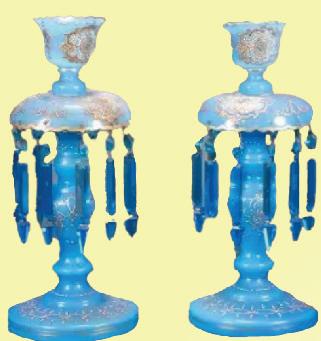








by David Wiseman
When I first heard about people playing pickleball, a sport invented in the United States, I thought it was a gimmick best left alone. I mean, really — kosher pickleball? It sounds like something you’d find in the Kiddush Olympics, where they play the herring toss followed by the whisky shot!
With Israel marking 23 months of war, I started asking people who play the game for their take, and here’s what shocked me: Usually, Israelis can’t agree on anything — but pickleball? Apparently, it’s unimpeachable.
The game’s origins in Israel aren’t definitive. Some say the first iteration was at Kibbutz Tzora. But today, there are around 3,000 players who play in 50 locations around the country — from Nahariya down to Beersheva, each cherishing their paddles as if they were relics from the Israel Museum.
It is not just a pastime. It is a little republic of its own, where strangers become partners, grandparents square off against grandchildren, and time stands still on a small concrete court.
What makes pickleball different is that it doesn’t pretend to be difficult or elitist. Tennis, badminton, squash and table tennis all require a basic level of aptitude. Not pickleball.
Lee Sieradzky, chairman of the Israel Pickleball Association (IPBA), talks about the sport as though it were a social revolution. Children, grandparents, religious, secular … everyone on one court. It’s like the United Colors of Benetton of sports.
“Our goal is to acquire as many players around the country in as many demographics as possible,” he said, his eyes glowing with a missionary zeal. “Unlike any other sport, ours is one where kids can play with their grandparents, it can be played indoors or outdoors, and most importantly, games don’t take a long time.”

That’s how they get you. A quick fix. A short game. A little hit before dinner in the dining room. Before you know it, you’re in deep, mainlining pickleball four times a week.
It is a busy time for pickleball in Israel. Not only are they preparing for the sport’s first appearance at next year’s Maccabiah Games, in which around eight delegations will make a pilgrimage to the holy land. The Israel Pickleball Association is also about to send off an Israeli team for its first-ever international tournament.
“We have been invited to the 2025 Pickleball World Cup in Fort Lauderdale, where we will be entering a couple of teams,” Sieradzky said. Israel plans to send 20 players and coaches for the competition in October.
Sieradzky is also working to organize a national league to add to the handful of major tournaments already held during the year.
His right-hand man is David Abel, Israel’s national pickleball coach. He describes the game
with the zeal of someone explaining their favorite Game of Thrones character.
“I’ve seen skeptics go from rolling their eyes at the sport to refusing to leave the court,” Abel said.
Adam Bachmann, Israel’s top-ranked singles pickleball player, comes from a squash background; he is currently the Israeli masters champion.
“I only heard about pickleball because the company I work for, Playsight, was selling systems to pickleball clubs, and we had no idea what they were,” he recounted. “I was sent to find out and wasn’t keen on doing so. I started playing and I was hooked. Now I’m playing three to four times a week. I’m excited to go to the World Championships, not just to play, but because the host club is also a client!”
In Jerusalem’s Park Gonenim, I found what had been a cracked concrete basketball court until the nets, which were kept in a nearby resident’s yard, went up.
Players materialized out of nowhere, like they’d been hiding in nearby hedges, waiting to appear. Presiding over it all was Shoshana Drimer, 77, an immigrant from Baltimore and prophetess of the pickleball gospel.
Asked what it is about the game that turns people into pickleball addicts, she replied: “I wish I could tell you! Every time you play, it’s a good time, and everyone is so supportive.”
Pickleball can be played in singles or in doubles, though doubles is preferred in casual settings to allow more people to play at once (and there’s less running). A foursome was playing on one court, and while we waited for more people to arrive, I practiced with other players on the second one.
They were right! It is fun hitting the ball back and forth, and playing on a smaller court than tennis makes it much easier to keep the rally going.
“David, you’re on,” someone shouted.
This was it. I was ready for a game. On this perfect Sunday morning, we started rallying for laughs and then, just like that, I wanted to crush
my opponents as if it were the World Cup final. Now I got it. It’s not like learning the guitar or mastering chess. Can you hit a ball over a net? Congratulations! You’re a pickleballer.
Two hours later, I walked away grinning, with a few games won, a few lost and a whole new respect for this strange-named sport. I stumbled away with new friends, aching muscles and an acknowledgement: This thing is real.
Next up: Brenda Benaim, who represented Israel at three Maccabiah Games in netball and now has the pickleball bug. “My brother told me about pickleball. It took me a while to see what it was about, but once I finally tried it, I didn’t look back.”
What did she think was the secret to pickleball’s hold on people? “The great thing about it is that it’s as competitive as you want it to be,” she said. “When you find people who are on a similar level to you, it’s just so much fun. And in these times more than ever, we need an outlet — we deserve to have some fun.”
Sara Halevi, one of the organizers of pickleball in Jerusalem and a regular player, noted: “When my son went to fight in Gaza, I started playing pickleball every day. This game literally saved my sanity.”
David Kaplan, the chairman of Ayelet–The Federation of Non-Olympic Competitive Sport in Israel, recently returned from a World Games, the global multisport competition for non-Olympic sports.
“For a sport to be a part of Ayelet, it has to be approved by the Ministry of Sport, and it needs to be in the World Games,” said Kaplan, who is also a pickleball lover.
Globally, the sport’s governing bodies are finally uniting, which is the first step to clearing the path to Olympic recognition one day.
Once the sport is recognized by the Israel Ministry of Sport, it can then be included by the Ministry of Education in the roster of sports taught in schools.
While soccer and basketball may be the big sports in Israel, the reality is that many children couldn’t care less about either. More kids can be involved at once in pickleball, and the game caters to players of all shapes, sizes and skill levels.
If Israel can be one of the first countries to introduce the sport to children in schools, it could dominate international pickleball competitions for years to come, just as South Korea dominates archery and China dominates table tennis.
As my journey into the mystery of pickleball came to an end, what was my answer to why people love the sport so much? Maybe it’s because pickleball is the great equalizer, a sport with no locked doors.
Pickleball is new enough, democratic enough and weird enough that you can start today and imagine yourself on the Israeli national team tomorrow. It’s the rarest of things in adulthood: a second chance at athletic greatness.
Pickleball isn’t only about exercise. Or community. Or even fun. It’s about hope. And we could all do with a regular dose of hope.

EthEl G. hofMAN

Home for the holidays? That’s not always the case for college students, who travel far and wide to attend schools throughout the United States. It’s not always possible to return to family after arriving across the country to study. Travel is expensive and timeconsuming, and this year, with the Jewish holidays falling midweek, it could result in too much missed time for classes.
Fear not. Campuses across North America offer services, meals and more for those students staying put on campus.
The Philadelphia area is a case in point.
At Penn Hillel, rabbis and staff have a wellorganized, publicized celebration for High Holidays. Fliers are distributed saying, “Your Home for the New Year,” inviting students, faculty, staff, alumni and friends to join in inspiring, meaningful experiences. Everyone is welcome.
Prayer services are geared to include the observant, non-observant or those who have a strong commitment to Judaism but may only seek services annually in the fall.
This year, Rabbi Joshua and Sara Klein, OU-JLIC directors at Penn Hillel, will conduct Orthodox services; Rabbi Beth Levy and Rabbi Matthew Anisfeld will conduct Conservative services; and Rabbi Misha Clebaner and Rabbi Madeleine Fortney will lead Reform services.
Holiday meals are provided by Falk caterers, with the same company offering kosher meals on campus year-round. And at the end of Neilah, the final Yom Kippur service, and after the long piercing blast of the shofar, everyone is invited to a Break the Fast meal. Students who want to hang out with friends after the service ends may host their own Break Fast, which can be “reimbursed by Penn Hillel,” notes Rachel Saifer, director of operations.
Rabbi Chaim and Moussia Goldstein, co-directors of Chabad Serving Drexel University for the past 15 years, are a part of the fabric of the campus community. In preparation for the High Holidays, Moussia Goldstein says that “we’re in touch with administration … they’re supportive and help with the planning. Rosh Hashana is the first day of the semester, so we send out emails to the Jews on campus, regardless of their affiliation or observance level.”


Rabbis Goldstein and Greenberg, and Moussia Goldstein, will provide incoming freshmen with general information and details about holiday activities. On Sept. 17, there’s a shofar factory, where students can make their own shofars There’s “tabling” on Sept. 21, when Rabbi Menny Greenberg will serve apples and honey (and brownies). Before and during Rosh Hashana, Rabbi Goldstein will walk around the campus to blow the shofar for those who couldn’t make it.
And the caterer for the holiday meals?
“That’s me,” chimes in Moussia Goldstein, “and students help, too.” Her pomegranate ice-cream is always served at Chabad. She won’t share the recipe … but maybe stir pomegranate seeds into yogurt for a quick seasonal fix?
Rabbi Jeremy Winaker, executive director of Greater Philadelphia Hillel, is responsible for Hillel at Bryn Mawr and Haverford colleges, as well as Villanova and Thomas Jefferson universities. Leo Levine is the rabbinic intern for Haverford this year, and Miriam Ginsberg is the rabbinic intern at Bryn Mawr, where they will conduct High Holiday services.
“We spend the first day back getting to know the students, what’s on their minds, so that we can focus on what’s important to them,” says Winaker. The rabbinical staff works to make sure that all Jewish students can celebrate either on campus or at local synagogues, where transportation can be arranged.
“We have good relations with all the colleges, so that makes planning easy,” he says, “and space is set aside for services.” At Haverford, kosher meals are provided by Deluxe Kosher Catering.
“At Bryn Mawr, meals can be provided by Nana’s Kitchen a few towns over. Meals will be provided at Villanova, a Catholic school, and at West Chester University. Although services are not held on these campuses, High Holiday discussions focus on topics such as “How can you forgive yourself as well as others? How can I be a better person in the coming year?”
“Tashlich, on Rosh Hashana afternoon, is an important ceremony attracting many Jewish students,” says Winaker. “Throwing bread into a body of water represents the desire to shed past wrongdoings and start fresh.”
Traditional dishes, like the brisket and tzimmes, are traditional and nostalgic, and everyone’s mother has the “best” recipe. The recipes below, exchanged between longtime friends and family, are always at the Hofman holiday table. If there’s any leftover brisket, whip up a
Shepherd’s Pie, a tasty homemade dish that’s ready to bake in minutes. Pumpkins are in season, and Golden Spiced Pumpkin, akin to a carrot tzimmes, is a holiday favorite in Israel. Serve hot as a side dish, or sweeten with honey and offer as a dessert. Fruit compotes are essential in kosher cooking, as they may be served with any
meat meal. For Crimson Compote, I use frozen fruits to save time, but fresh ones work even better. Just cook them a little longer to soften them. Shanah Tovah! Blessings for a sweet, peaceful year!
Serves 8 to 10
Cook’s Tips: •If you don’t have a Dutch oven, use a thick, heavy-bottomed pot with a tight-fitting lid. •Look for Choice or Prime cuts of meat. Prime cuts have more marbling, meaning fat, resulting in a more flavorful, tender brisket. •Untrimmed brisket has more fat to prevent greasiness. Skim off fat just before the end of cooking. •Can substitute frozen white onions and peeled baby carrots from the market.
Ingredients:
• 2 Tbsp. vegetable oil
• 5- to 6-lb brisket
• 1 lb small white onions, peeled
• 1 medium rutabaga, cut into 2-inch chunks
• 4 to 5 carrots, peeled and sliced 1/2inch thick
• 3 bay leaves
• 1-1/2 tsp. salt
• 1/2 tsp. black peppercorns
• 1-1/4 cups beer
• 1 lb white mushrooms, halved
See Hofman on page 14




























































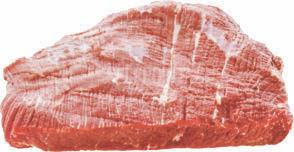




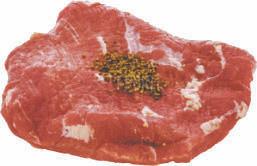








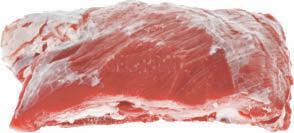









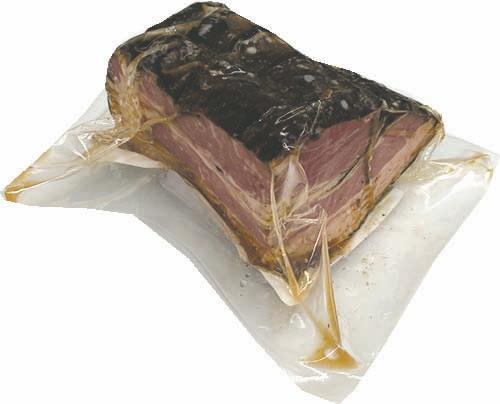






























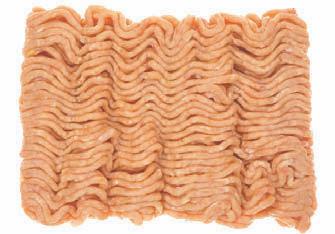











Continued from page 11
Directions:
Preheat oven to 325 degrees. Heat oil in a large Dutch oven over medium-high heat. Add the brisket, turning until nicely browned on all sides, 6 to 8 minutes. Remove from heat. Add onions, rutabagas, carrots, bay leaves, salt and peppercorns. Pour the beer over the top and cover tightly. Cook in a preheated oven for 2 hours. Stir in the mushrooms. Cook for 1-1/2 to 2 hours or until the brisket is tender. A fork should slide out easily when inserted in the thickest part of the brisket. Let it stand for 10 to 15 minutes before slicing.
Serve on a warm platter with vegetables spooned around the meat. Skim the fat off the gravy. Pour into a sauceboat to pass around.
Serves 6
Cook’s Tips: •For weekday supper, substitute cooked ground turkey or cooked ground beef for brisket. •Stir in one-third cup snipped parsley and 1 teaspoon cumin with the vegetables.
Ingredients:
• 2 Tbsp. vegetable oil
• 1 medium onion, thinly sliced
• 3 cups cooked brisket, shredded
• 1/3 cup steak sauce
• 1/4 cup ketchup
• 1 (10-oz package of frozen peas and carrots), thawed
• 3 to 4 cups mashed potatoes
• Paprika for dusting
Directions:
Preheat oven to 375 degrees. Heat oil over medium heat.
In a large pot, add the onion, cooking until


softened, about 5 minutes.
Add the remaining ingredients except the potatoes. Stir to mix.
Turn the mixture into a 9-inch square baking dish. Top with mashed potatoes, swirling the surface with a fork. Dust with paprika.
Bake in preheated oven 30 minutes, or until the potato topping is lightly browned and the meat is heated through.
Serve hot.
Serves 6 to 8
Cook’s Tips: •Ready-cut up pumpkin is available in supermarkets. •If a whole pumpkin is used, peel, remove seeds and cut into 1-1/2-inch pieces.
Ingredients:

• 3 Tbsp. margarine
• 6 cups cubed pumpkin
• 1-1/4 cups orange juice
• 1/3 cup light-brown sugar
• 1/4 tsp. nutmeg
• 1/2 cup golden raisins
• 1 tsp. ground cardamom (optional)
Directions:
Melt the margarine in a large saucepan.
Add the pumpkin, orange juice and sugar. Bring liquid to a simmer over medium heat.
Cover tightly and cook until the pumpkin is soft and pulpy, about 20 minutes. Remove from heat.
Add the nutmeg and cardamom (if using), and mash with a fork. Stir in the raisins. If the mixture is too liquidy, return it to the pan and cook, uncovered, until the liquid is absorbed.
Serves 8
Cook’s Tips: •Use any nuts, such as walnut halves or chopped pistachios, for pecans.
•Store-bought lemon juice works fine.
Ingredients:
• 1/2 lb wide egg noodles, cooked according to package directions
• 1 stick (4 ounces) margarine or butter, softened, divided
• 1/3 cup brown sugar
• 2 large eggs
• 2 Tbsp. granulated sugar
• 1-1/2 tsp. cinnamon

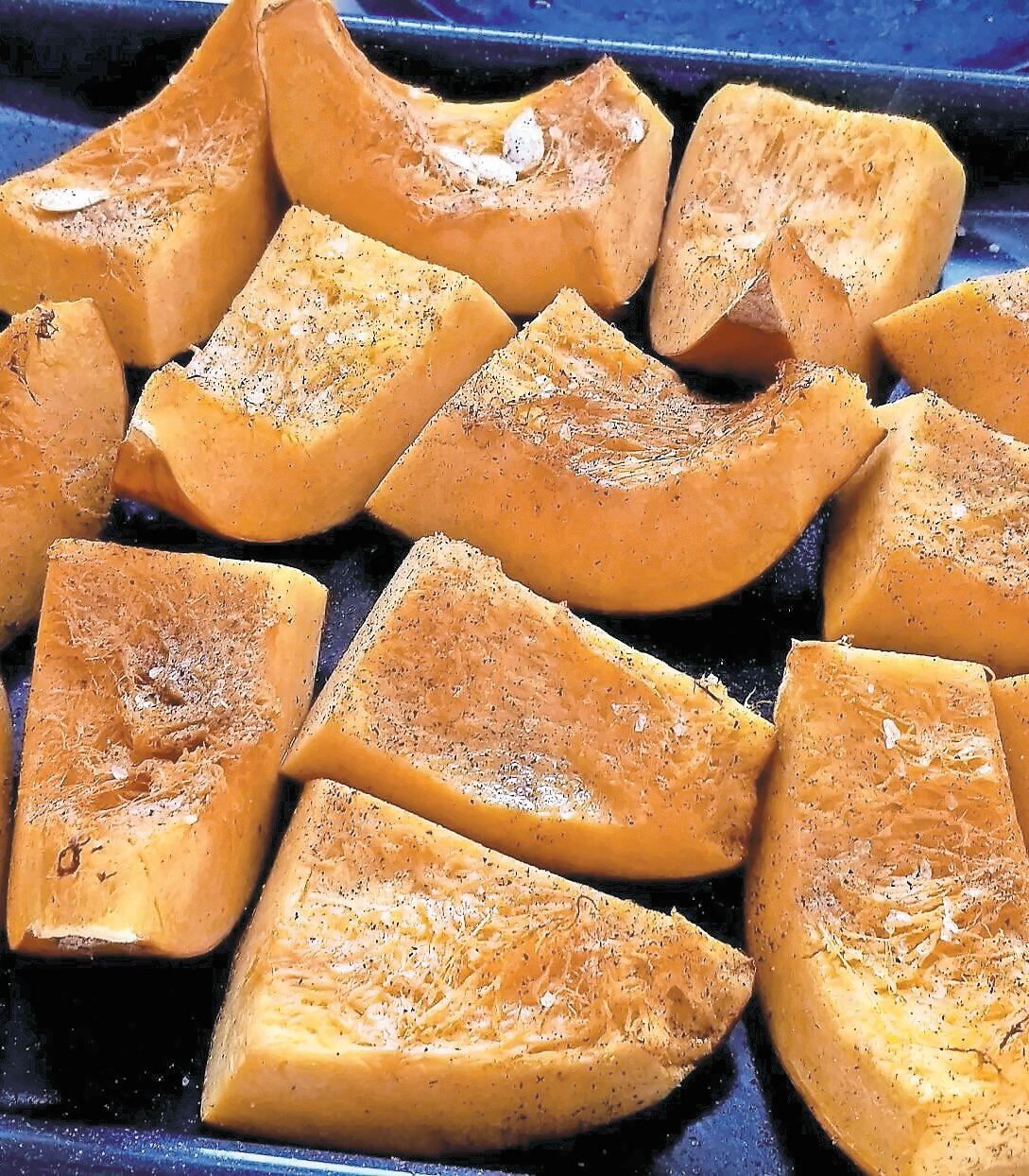

Directions:
Preheat oven to 350 degrees. Spray a 9x5x3inch loaf pan with nonstick vegetable spray. Drain noodles, place in a large bowl. Set aside. In a separate bowl, mix 6 tablespoons of margarine or butter with the brown sugar until well blended. Spread over the bottom of the prepared loaf pan.
Press pecan halves, if using, flat sides up into the brown-sugar mixture. Set aside. Beat together the remaining margarine or butter, eggs, granulated sugar, cinnamon and lemon juice. Fold into the drained noodles. Spoon the brown-sugar mixture over the top. Bake in a preheated oven for 45 minutes, or until the kugel is firm and nicely browned. Cool for 5 minutes. Loosen edges with a round-bladed knife. Turn onto a serving platter. Serve hot.











• 2 Tbsp. freshly squeezed lemon juice
• 1/2 cup pecan halves or nuts of choice (optional)


Serves 4 to 6
Cook’s Tips: •If using fresh fruit, cut strawberries in half, increase marmalade to one-third cup and increase wine to half a cup.
•Make it two days ahead of time and chill.
•Serve in wine glasses for a fancier look.
Ingredients:
• 1/4 cup sweet red kosher wine
• 1/4 cup orange marmalade
• 2 cups frozen blueberries
• 2 cups frozen strawberries
• 1 cup frozen raspberries
• 2 Tbsp. shredded fresh mint leaves
• honey to sweeten, as desired
Directions:
In a medium saucepan, combine the wine and marmalade. Warm over medium heat, stirring, until the marmalade is melted. Stir in the frozen fruit and mint leaves. Bring to a simmer. Cook until the berries are thawed and soft, about 10 minutes. Mash coarsely with a fork. Cook for 5 minutes more.
Sweeten with honey, as desired. Cool. Serve at room temperature or chilled.
Write: Columnist@TheJewishStar.com
By Carin M. Smilk, JNS
Other than apples and honey, nothing says the Jewish holidays more than honey cake.
This recipe has a dose of caffeine in it, always a boost after the 25hour fast on Yom Kippur.
There are also two ways to present the final product, one of them just a tad fancier.
Shanah Tovah Metukah!
Grandma’s Honey Cake (Pareve)
Serves 10-12
Ingredients:
• 1-1/2 cups sugar
• 5 eggs
• 1-1/2 cups honey
• 1 cup vegetable oil
• 1 tsp. baking soda
• 3/4 tsp. ground cloves
• 4 cups all-purpose flour
• 3/4 cups freshly brewed strong coffee
• 1 lemon (juice of the lemon)
Directions:
Preheat the oven to 300 degrees. Lightly grease a 9x13-inch rectangular cake pan with oil. Line the bottom and walls with parchment paper that is also lightly greased. Set aside.
Separate the egg whites from the yolk.
In an electric mixer, beat the 5 egg whites until they are stiff with a snowy texture and put them aside.
In a new bowl, beat with an electric mixer the 5 egg yolks with the sugar until the sugar is well-blended.
Mix the honey and lemon juice together to thin out the honey, then add it to the mixture. Add the baking soda, ground cloves and oil.
Mix the ingredients thoroughly, making sure that there are no lumps and no ingredients are stuck to the bottom of the bowl. Add the brewed coffee.
When the preparation is nicely homogeneous, add the beaten stiff egg

white mixture.
Finally, add flour slowly until the batter becomes thick.
Pour the batter into the prepared pan. Bake for approximately 1 hour
and 15 minutes until the cake is golden brown or until a wooden stick comes out completely clean.
Once the cake is ready, remove it from the pan, keeping the parch-
ment paper on.
To make sure the cake retains its moistness, wrap the parchment paper in aluminum foil.
Alternative design presentation
If you present your honey cake this way, it will be equally delicious. The only difference is that the moist part will be on the bottom rather than the top. This style is more elegant; it’s great for dinner parties and other special occasions.
Use a honeycomb pull-apart pan. Lightly grease it with oil before using.
Pour approximately half of the batter into the pan, and pour the remaining batter into a 9x5-inch cake pan. Bake for approximately 1 hour and 15 minutes until the cake is golden brown or until a wooden stick comes out completely clean.
Once the cake is ready, remove it from the pan. To retain moistness, wrap the cake in aluminum foil.
Recipe courtesy of the Apeloiog Collection.

Jewish Star Torah columnists: Rabbi Benny Berlin, spiritual leader of BACH Jewish Center in Long Beach; Rabbi Avi Billet of Anshei Chesed, Boynton Beach, FL, mohel and Five Towns native; Rabbi Binny Freedman, rosh yeshiva of Orayta, Jerusalem; Dr. Alan A. Mazurek, former ZOA chair, retired neurologist, living in Great Neck, Jerusalem and Florida.
Contributing writers: Rabbi Sir Jonathan Sacks zt”l, former chief rabbi of United Hebrew Congregations of British Commonwealth; Rabbi Yossy Goldman, president South African Rabbinical Association; Rabbi Dr. Tzvi Hersh Weinreb, OU executive VP emeritus.
To submit commentary, inquire at: Editor@TheJewishStar.com. Contact our columnists at: Columnist@TheJewishStar.com.
Fri Sept 12 / 19 Elul
Ki Savo
Five Towns candles: 6:51 • Havdalah: 7:58
Scarsdale candles: 6:51 • Havdalah: 7:50
Fri Sept 19 / 26 Elul
Nitzavim
Five Towns candles: 6:39 • Havdalah: 7:46
Scarsdale candles: 6:39 • Havdalah: 7:37
Mon Sept 22 / 29 Elul
Erev Rosh Hashana
Five Towns candles: 6:34
Scarsdale candles: 6:34
Tue Sept 23 / 1 Tishrei
Rosh Hashana Tashlich
Five Towns: 7:33 • Havdalah, Wed: 7:40
Scarsdale: 7:32 • Havdalah, Wed: 7:31
Five Towns Candlelighting: From the White Shul, Far Rockaway, NY
Scarsdale Candlelighting: From the Young Israel of Scarsdale, Scarsdale, NY
rabbi Sir
JonaThan SaCkS zt”l
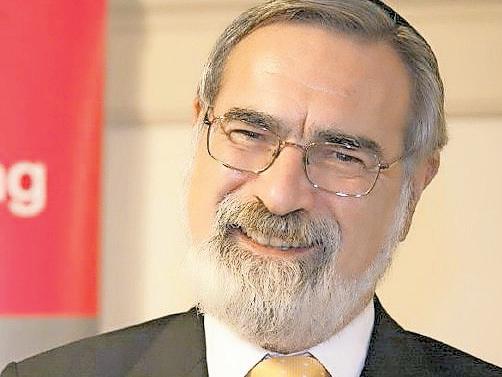
It would be reasonable to assume that a language containing the verb “to command” must also contain the verb “to obey.” The one implies the other, just as the concept of a question implies the possibility of an answer. We would, however, be wrong.
There are 613 commandments in the Torah, but there is no word in Biblical Hebrew that means “to obey.”
When Hebrew was revived as a language of everyday speech in the 19th century, a word, letsayet, had to be borrowed from Aramaic. Until then there was no Hebrew word for “to obey.”
This is an astonishing fact and not everyone was aware of it. It led some Christians (and secularists) to misunderstand the nature of Judaism: very few Christian thinkers fully appreciated the concept of mitzvah and the idea that G-d might choose to reveal Himself in the form of laws. It also led some Jews to think about mitzvot in a way more appropriate to Islam (the word Islam means “submitting” to G-d’s law) than to Judaism. What word does the Torah use as the appropriate response to a mitzvah? Shema
The root sh-m-a is a keyword in the book of Deuteronomy, where it occurs 92 times, usually in the sense of what G-d wants from us in response to the commandments. But the verb sh-m-a means many things. Here are some of the meanings it has in Genesis:
1. “To hear” as in: “Abram heard that his relative [Lot] had been taken captive” (Gen. 14:14).
2. “To listen, pay attention, heed” as in: “Because you listened to your wife and ate fruit from the tree” (Gen. 3:17) and “Then Rachel said: G-d has vindicated me; He has listened to my plea and given me a son” (Gen. 30:7).
3. “To understand” as in: “Come, let Us go down and confuse their language so they will not understand each other” (Gen. 11:7). This is how tradition understood the later phrase Naaseh ve-nishma (Ex. 24: 7) to mean, “first we will do, then we will understand.”
4. “To be willing to obey” as the angel’s words to Abraham after the Binding of Isaac, “Through your offspring all nations on earth
Only by recognizing G-d as their sovereign will they guard against overbearing kings and corruptions of power.
will be blessed, because you were willing to obey Me” (Gen. 22:18), when Abraham was about to obey G-d’s command, and at the last moment an angel called upon him to stop.
5. “To respond in deed, to do what someone else wants” as in “Do whatever Sarah tells you” — sh’ma bekolah (Gen. 21:12).
It is in this last sense that the verb sh-ma comes closest in meaning to “obey.” The very fact that it carries all these meaning suggests that in the Torah there is no concept of blind obedience.
In general, a commander orders and a soldier obeys. A slave-owner orders and the slave obeys. There is no active thought-process involved. The connection between the word of the commander and the deed of the commanded is one of action-and-reaction, stimulus-andresponse. For practical purposes, the soldier or slave has no mind of his own.
As Tennyson described the attitude of the soldiers before the Charge of the Light Brigade, “Ours not to reason why; ours but to do or die.”
That is not how the Torah conceives the relationship between G-d and us. G-d, who created us in His image, giving us freedom and the power to think, wants us to understand His commands. Ralbag (Gersonides, 1288-1344) argues that it is precisely this that makes the Torah different:
Behold our Torah is unique among all the other doctrines and religions that other nations have had, in that our Torah contains nothing that does not originate in equity and reason.
Therefore this Divine Law attracts people in virtue of its essence, so that they behave in accordance with it. The laws and religions of other nations are not like this: they do not conform to equity and wisdom, but are foreign to the nature of man, and people obey them because of compulsion, out of fear of the threat of punishment but not because of their essence.
Along similar lines, the modern scholar David Weiss Halivni speaks of “the Jewish predilection for justified law,” and contrasts this with other cultures in the ancient world:
Ancient law in general is apodictic, without justification and without persuasion. It style is categorical, demanding, and commanding. … Ancient Near Eastern law in particular is devoid of any trace of desire to convince or to win hearts. It enjoins, prescribes, and orders, expecting to be heeded solely on the strength of being an official decree. It solicits no consent (through justification) from those to whom it is directed.
The Torah uses at least three devices to show that Jewish law is not arbitrary, a mere decree.
First, especially evident throughout the book of Devarim, is the giving of reasons for the commands. Often, though not always, the reason has to do with the experience of the Israelites in Egypt.
They know what it feels like to be oppressed, to be a stranger, an outsider. I want you to create a different kind of society, says G-d through

Moses, where slavery is more limited, where everyone is free one day a week, where the poor do not go hungry, and the powerless are not denied justice.
The second, most notably in the book of Bamidbar, is the juxtaposition of narrative and law, as if to say, the law is best understood against the backdrop of history and the experience of the Israelites in their formative years. So the law of the Red Heifer — for purification from contact with the dead — occurs just before the death of Miriam and Aaron, as if to say, bereavement and grief interfere with our contact with G-d but this does not last forever.
We can become pure again. The law of tsitsit occurs after the story of the spies because (as I explained in an earlier column) both have to do with ways of seeing: the difference between seeing-with-fear and seeing-with-faith.
The third is the connection between law and metaphysics. There is a strong connection between Genesis 1, the story of creation, and the laws of kedushah, holiness. Both belong to torat kohanim (the priestly voice) and both are about order and the maintenance of boundaries. The laws against mixing meat and milk, wool and linen, and so on, are about respecting the deep structure of nature as described in the opening chapter of the Torah.
Throughout Devarim, as Moses reaches the summit of his leadership, he becomes an educator, explaining to the new generation who will eventually conquer and inhabit the land, that the laws G-d has given them are not just Divine decrees.
They make sense in human terms. They constitute the architectonics of a free and just society. They respect human dignity. They honor the integrity of nature. They give the land the chance to rest and recuperate. They protect Israel against the otherwise inexorable laws of the decline and fall of nations.
Only by recognizing G-d as their sovereign will they guard against overbearing kings and the corruptions of power. Time and again Moses tells the people that if they follow G-d’s laws they will prosper. If they fail to do so they will suffer defeat and exile. All this can be understood in supernatural terms, but it can be understood in natural ways also.
That is why Moses, consistently throughout Devarim, uses the verb sh-m-a. He wants the Israelites to obey G-d, but not blindly or through fear alone. G-d is not an autocrat.
The Israelites should know this through their own direct experience. They had seen how G-d, creator of heaven and earth, had chosen this people as His own, brought them from slavery to freedom, fed, sustained and protected them through the wilderness, and led them to victory against their enemies. G-d had not given the Torah to Israel for His sake but for theirs. As Weiss Halivni puts it: the Torah “invites the receiver of the law to join in grasping the beneficent effect of the law, thereby bestowing dignity upon him and giving him a sense that he is a partner in the law.”
That is the meaning of Moses’ great words in this week’s Parsha:
“Be silent, Israel, and listen! You have now be-
See Sacks on page 22
Jewish Star columnist

As we enter the period before Rosh Hashana, we are all encouraged to deepen our introspection as we pray, to inject a more kavanah. Yet our minds still wander.
Even on Rosh Hashana and Yom Kippur themselves, while in the throes of our deepest supplications, do we not flip handfuls of pages in the machzor to see how many pages are left? When we can leave out some of those small
print yotzrot that “some say,” our hearts leap, just a little.
Which brings me to Tachanun. It is a rare religious Jew who doesn’t have some sense of satisfaction when it is announced that there is a chatan in shul or a bris, and Tachanun can be skipped.
Tachanun is not a long prayer, but when you can skip it, well, it’s like we’ve all won a small lottery. The old joke goes that a baal teshuva is really not a full-fledged Jew until he feels the same sense of happiness that a frum-from-birth Jew feels when “we can skip Tachanun.” It’s crazy. And yet I admit I’m guilty.
Poor Tachanun. What an abused prayer, treated worse than Aleinu, which is rushed
through at the end of davening faster than the train you’re trying to catch.
(When I am speaking of Tachanun, it’s primarily the “long Tachanun” said on Monday and Thursday, as well as the short Tachanun, nefillat apayim, literally “falling on one’s face” prayer, which we do by leaning on our arm. I’m not even counting the Viduy confession said by Sefardim and also many Ashkenazi in Israel.
TGetting into the Elul groove with Tachanun.
The midrash tells us that those are the days of heavenly mercy because Moshe Rabenu ascended to Har Sinai to receive the second set
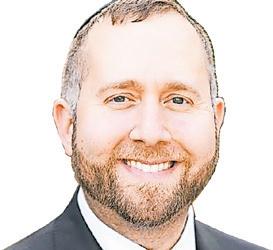
When I was studying for semicha, one of my rabbis faced a frightening trial. His wife suffered from heart failure, and the doctors recommended implanting an LVAD, a left ventricular assist device, to mechanically support her heart.
The technology is remarkable, but it demands constant vigilance. The patient must remain connected to computers and heavy bat-
teries, with sterile dressings changed regularly.
Before the surgery, the hospital social worker asked what seemed like a routine question: “Do you have someone who can support you during this time?” His wife answered, “Yes.”
But my Rabbi pressed further: “What would happen if the answer was no? What happens to patients who do not have support?”
The answer was stark. “Then we do not implant the device. That is hospital policy.”
He was stunned. “You would just let them die?”
“Yes,” the social worker said. “This procedure is too demanding. Without someone to encourage and assist, the patient simply cannot survive. We do not proceed.”

The horrific terror attack in Jerusalem on Monday morning reminds us again that there are no genuine peace partners in the region. The mass murderers are, tragically, all too representative of the thinking of many of our Arab neighbors.
But the Jewish New Year is upon us, and in our traditional blessings and good wishes to our friends and family, we usually include a blessing for peace. “Health and happiness, peace and prosperity” are staples in what we usually wish
each other at this time.
So supreme is the value of peace in Jewish tradition that, according to halachah, we are even permitted to tell a “white lie” for the sake of keeping the peace. How interesting that the very same Torah that teaches “M’dvar sheker tirchak (Distance yourself from words of falsehood)” (Exodus 23:7), also allows us to tell untruths in certain sensitive circumstances.
To praise a bride as beautiful, even if it is somewhat of an exaggeration, is perfectly fine. So is downplaying the hospitality and gracious-
he word Tachanun, which literally means supplication, originated with David Hamelech. The Talmud (Babba Metzia 59a) teaches that if one leans his head on his arm, nefilat apayim, in devout prayer, immediately after Shemoneh Esreh (no Kaddish in between), the prayer will be graciously accepted by Hashem. The reason we have longer Tachanun on Monday and Thursday is because those are the days we read the Torah and the Rabbinical courts were established by Ezra, to mirror the Heavenly courts that judge man on those same days.
The lesson is clear. Even our most advanced medical devices cannot function without human support. The machine that keeps the heart beating depends on the presence of hearts that care.
This truth is expressed in Parshat Ki Savo, which describes the mitzvah of bikkurim, the first fruits that farmers would bring to Jerusalem. The procession was grand, with music, parades, and joy. Yet the Gemara in Chullin (54b) notes something extraordinary. Normally, Halachah forbids workers from interrupting their labor, even to rise for a Torah scholar, be-
See Mazurek on page 22
cause every moment belongs to their employer. But when farmers came with their bikkurim, the workers were required to stop and greet them warmly: “Welcome to Jerusalem. How was your journey?”
Why the exception?
Rashi explains that if the farmers were ignored, they might not return the next year. The Torah insists that their efforts be acknowledged, that they feel honored and valued. Without encouragement, even a mitzvah as holy as bikkurim could falter.
Seen together, the LVAD story and the mitzvah of bikkurim highlight the same truth. Whether a matter of physical survival or spiritu-
See Berlin on page 22
ness of your host to avoid him being bombarded by would-be guests. And if, G-d forbid, a family member has been diagnosed with an incurable illness, sharing the devastating news with them may not be prudent; that is permissible as well.
To put it in very practical parlance, if your wife asks you, “Do I look fat in this dress?” not only are you allowed to lie, you may well be obligated to lie (as your very life may be in danger if you tell the whole truth).
Such is the imperative to keep the peace.
According to our teachings, not only must we behave peacefully, but we are enjoined to actively pursue peace. “Turn away from evil, seek peace and pursue it,” says Psalm 34. And in Pirkei Avot, Hillel said: “Be of the disciples of Aaron. Love peace and pursue peace, love all creatures and draw them close to Torah.”
Moses’ brother, Aaron, was famous for being a great peacemaker between people who had fallen out of favor with one another.
Global peace and regional peace, however, don’t begin in a vacuum. Peace on Earth begins with shalom bayit, “peace in the home.” And peace in the home begins with inner peace. If we aren’t at peace with ourselves, how can we possibly be at peace with others?
The story is told of a holy rabbi who, as a young man, had great dreams and aspirations of changing the world for the better. As he got older, though, he realized the world was a very big place. So he set his eyes on changing his own country. As he aged, he came to understand that the country, too, was vast, and he was compelled to recalculate, setting his sights on changing his city.
See Goldman on page 22
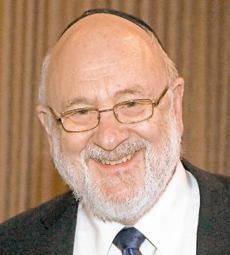
There was a time when the literary treasures of the Jewish people were accessible only to those with a reading knowledge of Hebrew. This is no longer the case. I must confess that when this phenomenon of translation began, I was not all that happy. I am a bit of a purist and have long clung to the belief that sacred Hebrew books should be read in the original.
I was willing to make exceptions for those religious classics which were originally written in languages other than Hebrew, such as those
works of Maimonides, Saadia Gaon, and Bahya ibn Paquda, which were originally written in Arabic and translated into Hebrew and eventually English as well. But for me, the Bible and classical commentaries were to be read only in the language in which they were written.
I was guided in my opposition to translation by the classic Italian motto, “traduttore traditore (the translator is a traitor).” No translation is exactly accurate, and ideas expressed in one inevitably lose some of their meaning when rendered into another.
Ironically, in recent years, I myself have become a translator. My first professional effort was with the elegies that are recited on Tisha b’Av. Translating these poignantly tragic poems was a difficult challenge, but I undertook the task in the belief that I was doing a public service by bringing these poems to the public,
albeit in a far from perfect form.
Since then, I have been involved in the process of translating classical Jewish works, and have come to terms with the fact that translations, although far from perfect, bring Torah study to multitudes of individuals who would otherwise be deprived from so much of our tradition.
These reflections bring us to this week’s Torah portion, Ki Savo. The relevant verses read:
As soon as you have crossed the Jordan into the land that the Lord your G-d is giving you, you shall
set up large stones. Coat them with plaster and inscribe upon them all the words of this Teaching. … On those stones you shall inscribe every word of this Teaching most distinctly.
What does this phrase, ba’er heitev, translated as “most distinctly,” mean?
The Babylonian Talmud Tractate Sotah 32b suggests that the inscription of that the “teaching” of Torah should be done in all 70 of the languages known to mankind. Moses himself, speaking on behalf of the Almighty, instructs the people to engage in that “traitorous” task of translation, unconcerned with the difficulties of rendering the word of G-d from sacred Hebrew into the languages of all mankind.
The Jerusalem Talmud takes a universalistic approach and suggests that these translations were to bring the teachings of the Torah to the entire world.
See Weinreb on page 22
Published weekly except during certain religious and civil holidays by The Jewish Star LLC New York City office: 5676 Riverdale Ave Suite 311, Bronx NY 10471 • LI office: 2 Endo Blvd, Garden City NY 11530 Here’s how to reach The Jewish Star — Write: Editor@TheJewishStar.com. Call: 516-622-7461 ext 291
Editor & Publisher: Ed Weintrob
516-622-7461 ext 291
Jewish Star Associate: Nechama Bluth
516-622-7461 ext 241
Content: The Publisher endeavors to ensure that our content is within the bounds of normative halachah and hashkafah. Anyone who feels anything we publish may be inappropriate in this regard is urged to bring the item in question to the attention of the Publisher. Advertising is accepted at the sole discretion of the Publisher and should conform to standards appropriate for distribution in an Orthodox community. Send us your news! Editor@TheJewishStar.com
Advertising: Publisher@TheJewishStar.com
Kashrut: The Jewish Star is not responsible for the
kashrut of any product or establishment featured in its pages. If you have questions regarding any establishment or product, including its supervision, please consult your rabbi for guidance.
Submissions: All submissions become the property of The Jewish Star and may be edited and used by the Publisher, its licensees and affiliates, in print, on the web and/or in any media that now exists or will exist in the future in any form, including derivative works, throughout the world in perpetuity, without additional authorization or compensation. The individual or entity submitting material affirms that it holds the copyright or otherwise has the right to authorize its use in accordance with The Jewish Star’s terms for submissions.
Opinions: Views expressed by columnists and other writers do not necessarily reflect the position of the Publisher or of The Jewish Star LLC.
Distribution: The Jewish Star is available free in kosher food establishments, stores, synagogues, and curb-side newsboxes on Long Island, in New York City and elsewhere. To request free delivery to your location, write Publisher@TheJewishStar.com.
Copyright: All content is copyright and may not be republished or otherwise reproduced without written permission by The Jewish Star; to do so without permission is against the law and halacha. For content reproduction write to Publisher@TheJewishStar.com.
The Jewish Star subscribes to JNS. It, or its contributors, own the copyrights on material attributed to them. The length and content of JNS material and all other submitted material may be edited by The Jewish Star.
Member: American Jewish Press Association. This newspaper contains words of Torah. While it is not considered shaimos, please dispose properly.
Mitchell Bard, foreign policy analyst, authority on USIsreal relations; Ben Cohen, senior analyst, Foundation for Defense of Democracies; Stephen Flatow, president, Religious Zionists of America-Mizrachi and father of Alisa Flatow, murdered in an Iranian-sponsored Palestinian terrorist attack in 1995; Yisrael Medad, Americanborn Israeli journalist and political commentator; Rafael Medoff, founding director of David S. Wyman Institute for Holocaust Studies; Fiamma Nirenstein, Italian-Israeli journalist, author of 13 books, leading voice on Israeli affairs, Middle Eastern politics and antisemitism; Melanie Phillips, British journalist; Moshe Phillips, national chairman, Americans for a Safe Israel; Thane Rosenbaum, Distinguished University Professor at Touro University (published by Jewish Journal); Jonathan S. Tobin, editor-in-chief, Jewish News Syndicate.
Distinguished University Professor Touro College
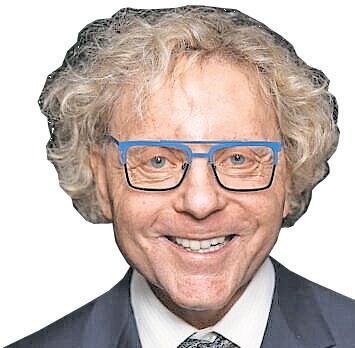
The lazy days of summer’s end skipped the United Kingdom and Australia this year. Mass protests swept across the Western world. Tens of thousands gathered in UK cities such as London, Epping, Bristol, Birmingham, Falkirk, Gloucester, Newcastle and Essex, where the streets were decorated with Union Jack flags. There were smaller rallies in Scotland and Wales.
In Australia, an estimated 45,000 took to the streets in Sydney, Melbourne, Brisbane, Perth, Adelaide and Canberra under the banner “March for Australia.” More than 100 Polish cities hosted their own assemblies.
What, you heard nothing about it? Well, the mainstream media ignores these stories because they involve the public disapproval of mass migration. White Europeans and Australians have come to recognize the irrefutable correlation between Muslim immigrants and violent crime. It simply can no longer be denied or wished away.
What news-gathering outlets report instead are rampaging Muslims and progressives screaming about a fictional, pretextual genocide in Gaza. Not even one thought it newsworthy to inform its readers and viewing audience that native Europeans chanted, “You can stick your Palestine up your hole.”
White Europeans, for the most part — at least those without pink or purple hair — don’t see Israel or Jews as the problem. They believe, instead, that their leaders have self-destructively welcomed a critical mass of unvetted Muslims into their nations. These arrivals have repeatedly demonstrated that they want no part of democratic governments. Sharia law is their North Star, and it is fundamentally incompatible with liberal values.
Europe has suddenly awakened from its Islamic slumber.
Guess who the arsonists are. It’s not the Jews.
In the UK, social tensions have escalated since July, mainly outside of hotels housing asylum seekers. Immigrants are being sheltered in these facilities, but who is protecting British citizens — especially white women — from being attacked by, of all people, asylum seekers?
The same protests occurred outside asylum centers in Ireland. There is great frustration over dwindling housing stock, declining public services, and added pressure on healthcare systems. But polls show that crime is the main concern.
This week, on September 13, in Central London, a march titled The Free Speech Festival will commence at Stamford Street and end at Whitehall, followed by speeches featuring British media personalities, commentators and right-wing public figures calling for the end of the Islamization of Europe.
What has sparked this pervasive social upheaval? The Daily Telegraph recently reported that one million people in the UK don’t speak English. For fully half the school children in England, English is not their primary language. White children are a minority in one of every four schools and make up less than two percent of the students in nearly 500 schools. Integration appears hopeless. There are 150 Sharia courts throughout the country. Why speak the Queen’s language if a caliphate is just around the corner?
UK cities such as London, Sheffield, Birmingham and Luton not only have Muslim mayors, but Muslim city councils. There is a widespread feeling that European culture — an entire way of life — is disappearing. And the decision to undergo this change was made by leftist elites without the public’s consent.
All of Europe is looking inward. Sweden’s white population will be the minority by 2040. In its most recent census, fewer than 40 percent of the population in the UK self-identified as Christian. Before too long, open borders and fanatical multiculturalism will leave Europe with Muslim majorities and buyer’s remorse.
Who knows whether this backlash would have taken hold without rising crime. Europeans are sickened by an epidemic of gangraping Muslim men, called “grooming gangs,” who believe the Koran grants them carte blanche privileges to rape infidel women — in broad daylight! This has happened to thousands of white women in the UK and across the continent. There is also gang violence, acid attacks, car-rammings, and

public stabbings.
When and if apprehended, these assailants are soon released or given light sentences. Why? Well, judges, apparently, attribute these heinous crimes to “cultural differences.” Sometimes courts blame 12-year-old girls for seducing Muslim men! Anything to avoid charges of Islamophobia and antagonizing wrathful, maniacal Muslims.
Talk about moral relativism on crack. Church fires are on the rise, too. This year alone:150 in the UK, 68 in Canada, 60 in Germany. Over 1,000 churches in France have been vandalized.
Take a guess who the arsonists are. It’s not the Jews. It’s those with an open contempt for infidels and apostates. The same people who established Sharia patrols to supervise unIslamic behavior — hassling European women for their dress and homosexuals for their mere existence.
And if you complain about it, criticize Islam, look at the Koran the wrong way, or offer a contrary opinion about the virtues of diversity, you can end up in jail for hate speech. That’s why this Saturday’s UK rally is called The Free Speech Festival.
Many of these rallies are organized by extremist right-wing, in some cases, neo-Nazi affiliated groups. But most participants who form these swelling crowds are neither members of such groups nor xenophobic racists. Neo-Nazis are more than happy to do the leg work in mounting these anti-immigrant spectacles. But you really must hand it to Muslims that their ingratitude managed to create all this crossover appeal, where moderate Europeans are making common cause with fascists.
Nice work, Islamists.
But what about accusations of Islamophobia, which seem to shut down all honest conversations about Islam’s intolerance for the West? The word is mostly defined as an irrational hatred. The hatred of Muslims is irrational and flatly wrong. If it results in discrimination, it is also patently illegal. But the fear of Islam is not irrational; it is real. And fear is the more common understanding of a “phobia.”
Look around the world. Where do we see beheadings and dismemberments, suicide bombings, lashing of women, teaching children to slit throats, the hanging of homosexuals?
Antisemites scream genocide against Israel
again and again

The anniversary of the Sept. 11, 2021 attacks is being marked this Thursday. Nearly 3,000 people were killed that day 24 years ago: 2,753 at the World Trade Center in lower Manhattan; 184 at the Pentagon in Arlington, Virginia; and 40 on United Airlines flight 93, which crashed in Pennsylvania after brave passengers — preferring to plummet to their deaths rather than enable the plane to reach the White House or Capitol building — fought the hijackers.
Included in the total were all the passengers on American Airlines flights 11 and 77, which the Al Qaeda terrorists in the cockpit used as the weapons of mass destruction to topple the Twin Towers.
In addition to the 2,977 men, women and children murdered on what came to be known as 9/11, more than 6,000 others were wounded during and following the Islamist assault on the shores and essence of the United States. The immediate injuries included crushed bones, burns and smoke inhalation. Longer-term trauma — as
9/11 wasn’t sufficient to cause widespread recognition that Israel’s plight is part of a broader Islamist plot.
well as mental anguish — involved the health problems on the part of first responders and survivors stemming from exposure to toxic debris at Ground Zero.
For Americans, the catastrophe was a jolt to complacency. For Israelis, it was devastating, but not surprising. Citizens of the Jewish state had spent the 12 months leading up to the seemingly apocalyptic event trying to calculate which buses might blow up or what shopping mall would be targeted next by a suicide bomber.
The above characterized the years of the Second Intifada, which the Palestinian Authority, then headed by arch-terrorist and PLO chief Yasser Arafat, had launched in 2000. The impetus? Israeli Prime Minister Ehud Barak’s massive “land for peace” offering at Camp David.
It is thus that even many longstanding leftwingers in Israel’s “peace camp” reached the conclusion that diplomacy with terrorists serves only to intensify their bloodlust. And not only for Jews.
Islamists were already slaughtering Christians across the Middle East and Africa, and causing them to flee the P.A. in droves. Oh, and let’s not forget the Muslim “infidels” in jihadist crosshairs for “betraying” Islam.
These are the same jihadists who celebrated 9/11 by dancing on rooftops at the sight of victims jumping out of WTC windows. Meanwhile, the rest of the planet experienced dread.
But the sensation wasn’t sufficient to cause widespread recognition that Israel’s plight is part of a broader Islamist plot. Fast forward to Oct. 7, 2023, the second anniversary of which is coming up next month.
When Hamas invaded southern Israel and committed the worst atrocities against Jews since the Holocaust, one might have expected a transnational realization that this was a mani-

festation of the same jihadism responsible for 9/11 — and that different, often rival, Islamist groups, have a shared goal. Since the perpetrators of all such assaults are open about this aim, it shouldn’t be difficult to grasp.
Alas, 10/7 — proportionately 12 times the toll of 9/11 — had the opposite effect. Instead of constituting a wakeup call to the West, it unleashed the kind of antisemitism not witnessed since the rise of the Third Reich. Worse, it opened the floodgates of Jew-hatred in the United States, of all places — from the halls of Harvard to the pages of mainstream publications and beyond. The phenomenon isn’t merely disgusting; it’s self-defeating.
As the late British historian Paul Johnson wrote in Commentary magazine in 2005, “[An-
tisemitism] is an intellectual disease, a disease of the mind, extremely infectious and massively destructive.”
Furthermore, he stated, “In the whole of history, it is hard to point to a single occasion when a wave of antisemitism was provoked by a real Jewish threat (as opposed to an imaginary one).”
Nor, he added, is it “confined to weak, feeble or commonplace intellects; … its carriers have included men and women of otherwise powerful and subtle thoughts. Like all mental diseases, it is damaging to reason and sometimes fatal.”
Well, it’s certainly fatal for Jews — though in the process, it eats away at societies that succumb to it. The same goes for jihadism. Once it
See Blum on page 22

There were three years, from 2000 to 2003, when almost every day in Israel a bus blew up or a massacre was carried out in a pizzeria or a restaurant. That was the Second Intifada.
More than 1,000 Israelis were murdered, until the Park Hotel massacre in Netanya — 30 people slaughtered as they sat at their Passover seder — pushed Israel to send its troops into the cities that had become factories of terror. It worked. The intifada was crushed.
Later, then-Prime Minister Ariel Sharon — who had ordered the military operation — implemented the Gaza disengagement. More attempts at peace followed. Yet history has been punctuated by repeated outbursts of jihadist violence, leading up to Oct. 7, 2023, and now, to the horrifying realization that Israel is again under siege.
Monday’s bus massacre in Jerusalem made this crystal clear. The victims were innocent passengers heading to work. Earlier on Monday, four soldiers were killed in a Hamas attack on the outskirts of Gaza City.
The day before, a police detective was killed by gunfire in the Wadi Ara area and travelers
Israel understands its survival is at stake. The West does not.
were targeted at Eilat Airport. Before that, residents along the Gaza border. Farther north, civilians along the border with Lebanon. Looming in the background is Iran, feeding the fire with deadly weapons.
This is the nature of Israel’s reality: The rockets, the drones and the bullets only stop where Israel stops them with force. Otherwise, the country is so small that every explosion reverberates everywhere, sending families to shelters and turning buses into moving coffins.
Since Oct. 7, Israelis know this truth better than ever. This time, the grim face of Israeli Prime Minister Benjamin Netanyahu at the scene said more than words.
The threat is expanding. Judea and Samaria could become the next front for Hamas. The jihadists are explicit: They cannot lose. The Quran promises victory over the “infidels,” from the river to the sea. If this is still unclear to the West, it only strengthens both Sunni and Shi’ite radicals who are waging war without restraint.
In 2024 alone, Israel foiled 1,000 terror plots. But this attack slipped through. The two terrorists infiltrated near Katana, outside Ramallah, through one of the nighttime breaches used by shabachim — illegal Palestinian workers who evade Israeli controls. Hamas congratulated the killers but did not claim responsibility.
In Judea and Samaria, the group is still experimenting and organizing, preparing for something larger.

The larger plan is obvious: Jerusalem. For jihad, there is no greater prize. The city is encircled by towns and villages, the very places from which the two murderers came. Monday’s massacre was different in its sheer ferocity from the many drive-by shootings on highways. Armed with a cheap Carlo rifle and a pistol, the two terrorists boarded a crowded bus and shot passengers in the face. It was Oct. 7, in miniature.
There have been 55 terror attacks so far in 2025. The number is down, but only because Israeli surveillance has been tightened since the Hamas massacre and Palestinian entry permits are now heavily restricted. Yet the breaches remain countless and an estimated 40,000 shabachim move illegally inside Israel. This shadow army can find allies, weapons and safe houses among Israeli Arabs, all in service of the next planned inferno inside Jerusalem. Meanwhile, the Palestinian Authority has abandoned any pretense of moderation. It is now dwarfed by Hamas in public support and firmly tied to jihadist ideology. P.A. leader Mah-
moud Abbas still pays monthly stipends to every terrorist in prison and to the families of “martyrs.” He sustains terror instead of restraining it. Israel understands that its survival is at stake. But the West does not. French President Emmanuel Macron is now pushing for U.N. recognition of a Palestinian state — one that shows no sign of distancing itself from jihadism. This does not create peace. It only pressures Israel to institutionalize its self-defense and strengthens the jihadist narrative that terrorism pays. Israel is living the reality of a new intifada. The West should wake up to it before it is too late.
Write: Columnist@TheJewishStar.com

When it comes to understanding the war in Gaza, why would anyone give deference to a twisted ivory tower academic claiming to be a “genocide scholar?”
Here’s a newsflash: You don’t need to be a “scholar” to define genocide. All you need is a dictionary, which defines genocide as the deliberate killing of a large number of members of an ethnic group with the intention of eliminating that group. That’s the definition, and Israel’s conduct plainly does not meet it.
First, Israel is responding to an unprovoked, barbaric attack within its borders on Oct. 7, 2023, and fighting terrorists who embed themselves within civilian assets. The terrorists’
Of course, Israel isn’t trying to eliminate the Palestinians.
whole strategy is to falsely advertise civilian deaths and openly claim a desire to repeat their attack as often as they can.
Second, Israel has shown no intention of eliminating the Palestinians in Gaza, as evidenced by the exceedingly small percentage of civilians relative to militants who have been killed, the smallest percentage in any urban war.
Third, Israel clearly has the military power to destroy the Gaza Strip and all who live in it. If it wanted to, Israel could have done that at almost any time in its history, but it never would because genocide decidedly is against the Israeli ethos and values.
Fourth, Palestinian communities under Israeli control have grown nearly 10-fold since Israel took over.
Fifth, some 20% of Israeli citizens are Palestinian Arabs and, under Israeli rule, they have ascended to the highest echelons of business, law, medicine and academia.
•If you don’t believe that Israel has the right to destroy Hamas in order to prevent another Oct. 7, then you just hate Jews, and there’s nothing more to discuss.
•If you believe that Israel has such a right but believe that Israel is killing too many people, then you have an obligation to identify a less lethal way to destroy Hamas. I have yet to

hear a single critic of Israel offer such a method. The worst thing you can say about Israel is that it is winning an existential war that it did not start with exceptional care to minimize ci-
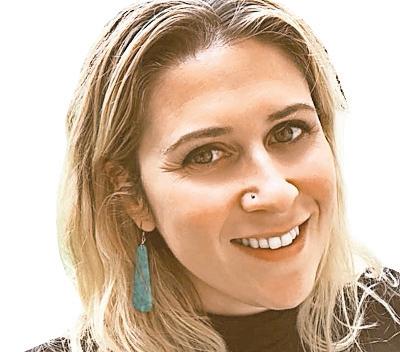
The history of Jew-hatred can be understood as the systematic perpetuation of defamatory rumors strategically deployed to demonize Jews. These myths have repeatedly produced lethal consequences, claiming Jewish lives across centuries and geographies.
The recurrence of these claims makes them difficult to refute before violence ensues. From the medieval blood libel to contemporary accusations of genocide and colonialism, each new fabrication presents itself as unprecedented. In reality, each libel constitutes a continuation of a long and violent genealogy of antiJewish discourse.
Professor Hatem Bazian at the University of California, Berkeley has advanced a modernized libel claiming that Israel seeks to conquer Mecca, an Islamic holy site. He said Israeli Prime Minister Benjamin Netanyahu “wants Egypt and Saudi Arabia because the Mecca and Medina area is part of Greater Israel.” Bazian’s accusation echoes the same destructive falsehood propagated nearly 100 years earlier by the grand mufti of Jerusalem — Haj Amin al-Husseini — who alleged that Jews were plotting to storm the Al-Aqsa mosque and replace it with their Third Temple.
The grand mufti showed “proof” of Jewish machinations to take over the Temple Mount in Jerusalem in the form of fundraising leaflets soliciting contributions to city Torah institutions and propaganda materials of various Zionist groups, including ”drawings of the Al-Aqsa mosque or the Dome of the Rock adorned with Jewish symbols, primarily Stars of David.” Husseini also orchestrated the Hebron massacre in 1929.
The latest libel: Israel seeks to conquer Mecca.
Bazian, co-founder of Students for Justice in Palestine — the student group notorious for harassing and attacking American Jews on college campuses — and the American Muslims for Palestine, knows exactly what he is doing when he deploys this falsehood. Indeed, structural anti-Zionism relies on a closed system of libels whose goal is to disseminate false information about Jews to demonize the Jewish people and convince good people to be willing and ready to enact violence on the Jewish people.
It worked on the night of Aug. 24, 1929, when Arabs, believing Husseini’s lies about Jews planning to take over the Temple Mount, attacked the Jewish community in Hebron and murdered 67 Jews in their homes and destroyed their synagogues.
Bazian’s “Mecca desecration libel” echoes Husseini’s “Al-Aqsa desecration libel” not only because the information is untrue and damaging, but because the goal is to globalize terrorism in the attempt to kill more Jews.
The strategy for addressing these falsehoods is two-fold. The first step must be to learn to recognize them. The second, more challenging step is learning how to respond to them.
Consider the Jewish response, issued by the National Committee of the Jews of the Land of Israel in November 1928, to the AlAqsa desecration libel:
We hereby announce, honestly and sincerely, that no one from Israel has any intention of infringing the rights of Muslims to the places that are holy to them. However, our Arab brothers must also recognize the rights that Israel has in this land, to our own places. … Any attempt to describe the desire of the Jews to pray at this holy place, the Western Wall plaza, in peace, with respect and without restriction, as the creation of a strategic base for an attack on the mosques of the Muslims, is nothing but the fruit of a fevered imagination or a malicious libel. The aim of this libel is to sow tumult and confusion in hearts and arouse animosity and conflict between different peoples.
While the Jewish community did expose the libel and its sole purpose, which was “to arouse animosity,” the Jews of British Mandate Palestine nonetheless fell into

the trap of defending themselves by producing evidence of their innocence. It is a rhetorical impulse that many Jews still share today.
When Jews are accused of committing genocide in Gaza, the instinctive response is often to refute the charge by citing the legal definition of genocide and stressing the centrality of intent. Yet this strategy inevitably fails because libels operate outside the realm of facts. As such, efforts to counter libels with evidence are ultimately futile.
Anti-Zionism is structural in that it is a system built upon lies that function as signs with a particular purpose. From the medieval charge that Jews poisoned wells to ritual murder accusations to conspiracies of global domination, the task for Jews is to decode these signs as recurring monikers of demonization.
Put differently, the claim that “Israel is an apartheid state” must be recognized as
shorthand for “Israel must be exterminated.” It should not be read as a commentary on actual apartheid for the sign functions instead to communicate that “the Jew is evil and must be destroyed.”
As the school year begins, groups advocating for Jews and Israel on campus, especially at UC Berkeley, where Bazian has been given free rein to spread his libels, must be careful not to fall into the trap of hosting events aimed at disproving accusations of genocide, apartheid or the charge of “taking over Mecca.”
Instead, their focus should be on exposing these dangerous libels and showing the world that anti-Zionism kills — and that its primary weapons are libels.
Naya Lekht is a research fellow at ISGAP (the Institute for the Study of Global Antisemitism and Policy). Write: Columnist@TheJewishStar.com

One of the better-known facts about Norway is that its sovereign wealth fund, fattened by decades of oil revenue, is the largest and wealthiest in the world. Valued at nearly $2 trillion, the fund is arguably the most powerful instrument that Norway has when it comes to influencing international trade policy.
In that sense, Norway’s election on Sept. 8 may turn out to be a watershed moment for the fund. And depending on what the incoming government does, it could well put the Scandinavian nation on a collision course with the United States as Oslo seeks to further sanction Israel — and those, including Americans, who trade with Israel — over what current Prime Minister Jonas Gahr Støre of the Labour Party has called its “barbaric” actions in Gaza.
While Labour commanded a comfortable lead in the opinion polls on the eve of the election, Støre will still have to form a coalition with smaller parties if he is to obtain the 85 parliamentary seats needed to govern.
With the collapse this year of its coalition with the moderate Centre Party, the obvious candidates are situated to the left of Labour, including the Socialist Left Party (SV), the communist Red Party (R) and the Green Party (MDG).
Knowing that it can extract a high price for joining a coalition government, the SV has asserted a non-negotiable demand for the
Anti-Zionist
ideology is the dominant form of antisemitism today.
sovereign wealth fund to divest its equity in a range of international companies — Israeli, of course, but also, according to the Norwegian news outlet Aftenposten, American, British, German and Taiwanese.
So far, eight US companies have been selected for divestment that would amount to around $13 billion.
Among those on the list is the construction equipment firm Caterpillar, long a bête noire of the pro-Hamas solidarity movement for its supply of bulldozers and similar vehicles to Israel, which the fund already divested from last week. It includes as well the Wisconsin-based defense manufacturer Oshkosh Corporation; aerospace and defense manufacturer RTX; travel and hospitality companies Airbnb, Booking Holdings, Expedia and TripAdvisor; and communications giant Motorola.
That list will doubtless be expanded as Norwegian politics become further immersed in the anti-Zionist ideology that has crystallized as the dominant form of antisemitism in this century. In some ways, Norway echoes similar trends observed elsewhere in Europe, where Israel’s war to defeat Hamas in Gaza has become a domestic issue with practical implications for electoral candidates who choose the “wrong” side. But in others, Norway is distinct.
“This is a story that started with the collapse of the Oslo process,” Prof. Torkel Brekke, a fellow at the Centre for Research on Extremism at the University of Oslo, told me.
During the 1990s, Norwegian mediators played a central role in securing a peace agreement between Israel and the PLO that resulted in the creation of the Palestinian Authority, but which disintegrated when the late PLO leader Yasser Arafat launched the Second Palestinian Intifada in 2000. As the conflict has intensified over the last 25 years, Norway — perhaps wounded by the ignominious end of a peace agreement with which it was so closely identified — has placed exclusive blame on Israel for that outcome.
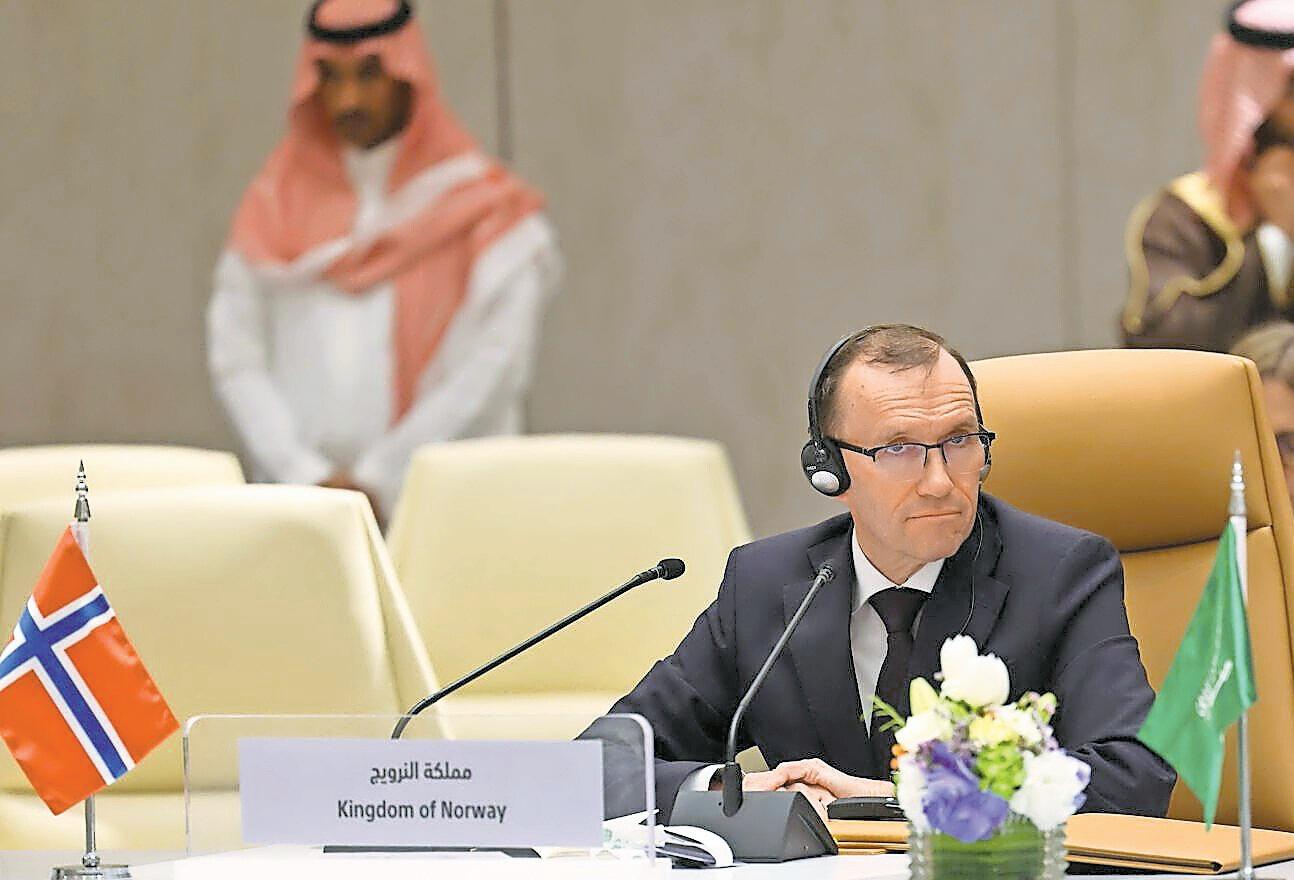
As Brekke explained, the left and its associated labor movement have been in the driving seat here. “It really comes from the Confederation of Labour Unions (LO),” he said. “The peculiar thing to know about Norway is that the LO to some extent controls the Labour Party. They have seats on its executive, and they coordinate daily on foreign policy.”
More than anything else, the LO wants to coordinate on targeting Israel. Brekke recounted that he had spoken with labor movement officials in neighboring Sweden and Denmark, who expressed concern with what one called the LO’s “obsession” with the issue. “It’s reached a point now where boycott and divestment are at the top of the LO’s agenda, and it
is pushing that agenda into the Labour Party,” Brekke said. “Anti-Zionism is driving the boycott campaign.”
By targeting companies that employ thousands of American workers, Oslo has hit a raw nerve.
Since the Hamas pogrom in Israel on Oct. 7, 2023, Norway has divested from more than 20 Israeli companies and banks, including telecom group Bezeq, Bank Leumi and Bank Hapoalim. In tandem with these government-directed moves, antisemitism has surged in Norway. The country’s tiny Jewish community of 1,500 has endured threats and vandalism, with 69% of Norwegian Jews reporting incidents impacting them personally.
See Cohen on page 23

Let’s be clear: What Israel is doing in Gaza is not genocide. To claim otherwise is to twist language, distort history and turn international law into a political weapon.
The International Association of Genocide Scholars (IAGS) just passed a resolution accusing Israel of “genocide.” The Washington Post dutifully reported it, as if it were a verdict handed down from Sinai. (The paper didn’t even bother to note that the vote was a small percentage of the membership.) But it is not law. It’s not binding. It’s not even serious scholarship but politics dressed up in academic robes.
Genocide has a strict legal meaning. It requires a proven intent to wipe out an entire people. That was the Nazis’ “Final Solution.” That was Rwanda in 1994. That was Bosnia in Srebrenica. It is not Israel, defending itself after the Hamas-led massacre in southern Jewish communities on Oct. 7, 2023, when 1,200 men, women and children were slaughtered, and 215 others kidnapped and dragged into Gaza. Some 50 remain captive there, some dead and some still alive.
Hamas openly declares that it will repeat Oct. 7 “again and again.” That is genocidal intent. Israel’s intent is the opposite: to dismantle a terror machine that hides in hospitals, schools and mosques, deliberately putting Gazans in harm’s way. The terrible civilian suffering in

Gaza is real, but it is the direct result of Hamas’s strategy, not Israel’s goal.
If Israel truly wanted genocide, the coastal enclave would have been flattened long ago. Instead, Israel has warned civilians to evacuate, opened humanitarian corridors and allowed aid trucks to enter — steps no genocidal regime has ever taken.
Even former President Joe Biden said bluntly: “What’s happening in Gaza is not genocide.”
The International Court of Justice in The Hague has not ruled otherwise. Only the IAGS, a group of activists masquerading as scholars, rushed to brand Israel with history’s darkest crime. They spouted their claim with only 30% of their organization voting in favor of hechshering the word; the voting itself came in the form of a listserv, according to news reports, without prior discussion of the matter among members.
Let’s call this what it is: a modern blood libel. Just like in the Middle Ages, when Jews were accused of murdering Christian children to justify hatred against them, today Israel is accused of genocide to delegitimize its very existence. The goal is the same: to turn Jews into monsters and strip them of the right to defend themselves.
Words matter. If everything is genocide, then nothing is. Diluting the term makes it harder to act when real genocides occur. It’s an insult to the victims of the Holocaust, Rwanda and Bosnia to equate Israel’s war of survival with their extermination.
Israel is not committing genocide. Israel is fighting to survive. And those who slander it with the world’s most heinous crime are not defending human rights are providing cover for terrorists who openly seek the next Oct. 7. That’s why the world cannot be silent. Every time this lie is repeated, it gains traction. Pro-Israel voices — and the voices of all who recognize truth — must push back in the press, on campus and in the halls of government. Call it out, write about it, challenge it. The stakes are not only Israel’s reputation. They are the integrity of international law itself.
Write: Columnist@TheJewishStar.com
Activists masquerading as scholars brand Israel with history’s darkest crime.
Continued from page 16
come the people of the L-rd your G-d. Listen to the L-rd your G-d and follow His commands and decrees that I give you today.” Deut. 27:9-10
Keeping the commands involves an act of listening, not just submission and blind obedience — listening in all its multiple senses of attending, meditating and reflecting of the nature of G-d through creation, revelation, and redemption. It means trying to understand our limits and imperfections as human beings. It means remembering what it felt like to be a slave in Egypt. It involves humility and memory and gratitude. But it does not involve abdication of the intellect or silencing of the questioning mind.
G-d is not a tyrant but a teacher. He seeks not just our obedience but also our understanding. All nations have laws, and laws are there to be obeyed. But few nations other than Israel set it as their highest task to understand why the law is as it is. That is what the Torah means by the word shema
Continued from page 17
Luchot, which then was the first day of Elul, a Thursday, and descended with them 40 days later on the 10th of Tishrei, on Yom Kippur, which was on a Monday, (Babba Kama 82a).
The origin of the nefillat apayim, literally falling on one’s face mentioned above, hearkens back to Yehoshua‘s falling on his face in the presence of the Aron HaKodesh, the Holy Ark (Yehoshua 7:6) and that is the reason it is, according to most poskim, only done in the presence of a Torah scroll.
The text of Long Tachanun is attributed to a story of three rabbis who were put adrift on a raft by the Romans after the destruction of Jerusalem. They landed on an island and were persecuted by the local king. They prayed a special prayer of their own composition and as a result, the king died and was succeeded by a righteous king who treated them with dignity and respect. As a result, they attributed their success to the prayer that they had composed, and distributed it to other communities that made it part of Monday and Thursday Tachanun (Kolbo 13th or 14th century CE).
Regardless of the origin story of the text, an examination of its words may help overcome some of our reluctance to say it. It reveals itself to be such a meaningful and personal prayer that it is actually a “mini Rosh Hashana and Yom Kippur” service that we say biweekly, with incredible power for us and for others.
The words rachem and rachamim (mercy) appear constantly. Selicha (forgiveness), the phrase Avinu Malkenu (our Father our King) is repeated over and over. When it is followed by the request that Hashem have mercy upon us, kerachem av al banim, as a father has mercy on his children, how can one’s heart not melt?
Anenu, answer us; Ha’bet la’brit (look at the Covenant You made with us) — all phrases and themes repeated throughout the Yamim Noraim, the Days of Awe, including Kol Nidre night! And concluding with Ha’poteach Yad b’teshuva (You, Who open a hand for repentance).
What an awesome prayer that we can personally request from Hashem twice a week — and certainly during Elul.
The Talmud relates several stories of the power of Tachanun , literally the power of life and death (Babba Metzia 59b), so much so that Rabbi Eliezer Hagadol’s wife had to stop her husband from saying Tachanun because she was afraid it was killing her brother Rabbi Gamliel, who had excommunicated Rabbi Eleizer.
Maybe that’s why so many of us don’t want to say it, fearful of the awesome consequences. As we know “with great power comes great
responsibility” (said Uncle Ben in Spider-Man comics, but actually its roots are in Torah, Devarim, Chapters 14, 15).
Maybe so. But the benefits outweigh the risks. In fact it’s even more important this year.
As stated above, at the time of our greatest forgiveness by Hashem at Har Sinai , after the sin of the Golden Calf, Moshe went up to plead our case in the heavens on the first of Elul which was a Thursday. After 40 days, he came down with the second set of Luchot, the Ten Commandments on 10th of Tishrei, Yom Kippur, which was a Monday.
This year it is exactly the mirror image of that, with the first of Elul on a Monday and Yom Kippur on a Thursday. Let Hashem reflect back to us that forgiveness He graciously gave us then, thousands of years ago.
Though we don’t have a Moshe Rabenu to be our advocate, it falls upon us, as individuals and as an aam, a nation, to direct our tefillot. A good place to start our preparation in this month of Elul is with Tachanun.
And for those who still relish those days when Tachanun is ”skipped,” you have the month of Tishrei coming, when Tachanun is “skipped” for almost (and according to some, the entire) month.
Shabbat Shalom and Ketivah va’Chatimah Tovah! Write: Columnist@TheJewishStar.com
Continued from page 17
al devotion, the success of the human endeavor depends on the presence of another person offering strength. Our bodies and our souls both require encouragement in order to endure.
This theme is reinforced throughout Tanach. Mishlei (12:25) teaches: Da’Agah B’Lev Ish Yashchena (When worry is in a person’s heart, a kind word can bring relief.” The Rambam (Hilchot Avel 14:1) writes that comforting the vulnerable is not simply an act of kindness but a fulfillment of the mitzvah of loving one’s neighbor as oneself. The Midrash in Vayikra Rabbah (34:14) goes even further, teaching that one who lifts the spirit of another is considered to have given life itself. Judaism insists that words of encouragement carry real spiritual and emotional power.
As we approach Rosh Hashana, this lesson becomes especially urgent. These are days of awe and reflection, when we stand before G-d in judgment.
Just as the LVAD requires a companion to sustain life, and just as bikkurim required greetings to sustain devotion, so too we are all sustained by the encouragement of others. There are singles who feel forgotten, spouses who feel unseen, children who long for validation, and neighbors who quietly shoulder heavy burdens. All of them depend on us to help them carry on.
When we strengthen others, we imitate Hashem Himself, who is described in Tehillim (147:6) as Me’Oded Anavim, (the One who upholds and encourages the humble).
Rav Dovid Feinstein zt”l was once asked: “If you could share a meal with any three people, who would you choose?” Many would have answered with great figures from Tanach or with philanthropists who could build Torah institutions. Rav Dovid answered differently: “Three poor people who need my support the most.”
This is our mission for the year ahead. Who are your three? Which three people can you think of right now who need your support, your encouragement, your validation? If each of us chooses three and commits to strengthening them, then the new year will not only be one of personal renewal but also of communal healing.
May we enter this Rosh Hashana ready to strengthen one another. May we embody the divine trait of encouragement, and may we all be written and sealed for a year of blessing, health, and peace.
Write: Columnist@TheJewishStar.com
Continued from page 17
And so it went, from the city to his neighborhood, to his street, and then to his family. Eventually, as a wise old rabbi, he finally appreciated that the only thing he could really change was himself. And that was a lifetime of work.
Changing ourselves will help us achieve peace in the home. “Charity begins at home,” and so does peace. It means to speak more softly to your spouse and children. From there, we can move on to placate a wounded friend. Perhaps, later, we may even find the humility to offer a genuine apology to someone we may have hurt by our insensitivity.
Of course, Yom Kippur is the time when we are enjoined to make amends and extend the hand of peace to anyone with whom we may not be on good terms. But the sages repeatedly reminded us that we needn’t wait for Yom Kippur. We should actually strive to put things right before Rosh Hashanah. Why go into the New Year and the Days of Judgment without putting things right first?
Someone once asked me if he should reach out to a fellow he’d argued with, even though he insisted that the other man was completely in the wrong. I said to him, “If the other guy called you first to put things right between you, would you be happy, or would you regret not being the one to have made the call?
He made the call.
I hope and pray that we will all take our own small steps in making peace between us. Please G-d, our combined efforts will help herald the arrival of the great messenger of peace, our righteous Moshiach, very soon. And that will definitely bring us peace in Israel and the world over.
Write: Columnist@TheJewishStar.com
Continued from page 17
The Zohar, basic text of the Kabbalah, notes that members of the Sanhedrin knew all 70 languages. But the Zohar does not take this literally. Instead, it understands the 70 languages to be a metaphor for the 70 facets of Torah, the 70 different avenues of interpretation with which the sacred text is endowed.
The members of the Sanhedrin were thus not linguists, according to the Zohar, but experts in probing the depths of the Torah’s meaning. Perhaps, the 70 languages inscribed on the stones in the River Jordan were also not the languages for the peoples of the world, but were 70 codes enabling so many different approaches to the Torah’s interpretation.
I prefer to understand the word “language” more broadly, not restricting it to a literal meaning that refers to French, Spanish, Swahili, and Portuguese. Rather, “language” can refer to a cognitive modality, or to a learning style. Thus, some of us prefer the language of humor, while others prefer the language of logic and reason. We speak of angry language, soothing language, and the language of love. Music is a language, play is a language, and there is even the language of war.
Every teacher knows he must use different “languages” for different students. Some students will respond to clear and logical explanations. Others will require anecdotes and stories. Still others will require humor, or perhaps visual illustrations.
Perhaps this is what the Talmud in Tractate Sotah is really teaching. Inscribed on those stones in the River Jordan were 70 pedagogical tools to allow every recipient of the Torah to learn its messages in his or her own idiosyncratic way.
Some would learn best by reciting the
words by rote until they were memorized. Others would learn by breaking the text down into small phrases and reflecting on them, and still others would learn by using visual imagery to “see” the meaning of the text.
Indeed, the phrase “70 facets of Torah” could be the Zohar’s way of referring to 70 different learning styles, encouraging teachers to identify a “stone in the River Jordan” to match every pupil, even those who on the surface appear unteachable.
If I am at all correct in this interpretation of “the 70 languages,” I am asserting that our Sages were very aware of a basic lesson in education. That lesson is that there is a need for individualized curricula so that diverse populations can all learn well.
This lesson is reflected throughout Talmudic literature. Here is one example:
Observe the excellent advice given to us by the Tanna Rabbi Yehoshua ben Perachya, “Make for yourself a teacher, and acquire for yourself a friend.” If you do this you will find that your teacher will teach you mikrah, mishnah, midrash, halachot, ve’aggadot.
Whatever is not conveyed in mikrah (scripture) will be conveyed in mishnah; whatever is not conveyed in midrash will be conveyed in the halachot; whatever is not conveyed in the halachot will become clear in the study of the aggadot. Thus, the student will sit in place and fill himself with all that is good and blessed.” (Avot DeRabbi Nathan, 8:1)
In this passage our Sages are advocating a richly variegated curriculum.
There are many erudite quotations that I could cite to summarize the point of my essay. But I prefer to conclude with a remark I hear from my teenage grandchildren: Different strokes for different folks.
Arguably, this is an apt motto for getting along with people in all situations. But it is especially apt for teachers. And as I have repeatedly stated in this column, we are all teachers!
Write: Columnist@TheJewishStar.com
Continued from page 18
and placate Palestinians because, among other reasons, they are terrified to confront the easily provocable violence that lurks much closer to home.
Is the United States far behind? There are calls to prayer in the middle of the street in Philadelphia. A female Islamic professor from Minnesota just called for the dismantling of the United States.
Dearborn, Michigan, where most of the population is Muslim; Patterson, Prospect Park, and Montgomery, New Jersey; Bell, California — all have Muslim mayors and nearly all-Muslim city councils.
Not even one condemned what Hamas and Gazan civilians did on October 7, 2023. Nor have any called for the release of the Israeli and American hostages.
Oh, have I mentioned that New York City, home to the largest population of Jews in the United States, is about to elect a Muslim mayor who believes that “Globalize the Intifada!” is not a rallying cry for jihad, but a harmless gesture of support?
Continued from page 19
Write: Columnist@TheJewishStar.com takes hold in the countries that its adherents seek to subjugate, it metastasizes.
This is particularly true in the West, where there is a dangerously low birthrate — other than among immigrants — as well as vociferous fellow travelers whose influence far out-
weighs their numbers. These are the useful idiots whose progressive politics and behavior are antithetical to the jihadist ideology they abet, whether out of ignorance or malice.
The latest excuse for ganging up on Israel and the Jews is the war against Hamas and subsequent/simultaneous battles with additional Iranian proxies, as well as with the Islamic Republic itself. The moral vertigo on the part of people who will be next in line if the jihadists have their way is astounding.
If not for the current administration in Washington, the only real relevant player in the international arena, Israel would be forced to face its mortal enemies, and counter the gaslighting by its ostensible friends, on its own.
Thankfully, President Donald Trump understands that the Jewish state, the “small Satan,” is on the front lines not only of the war against the “great Satan,” America, but against all the Judeo-Christian values that both hold dear. It’s precisely why he’s urging Israel to get on with the business of winning it already.
Ahead of this pair of interconnected anniversaries, it behooves us to stop bemoaning the hollowness of the post-Holocaust slogan “never again,” and remember Hamas’s vow, endorsed by jihadists everywhere, to repeat the abominations of Oct. 7 “again and again and again.”
Write: Columnist@TheJewishStar.com
Continued from page 21
Norway’s interventions are also becoming more vindictive. To give the most recent example, Israel’s national soccer team is due to play Norway in a World Cup qualifier on Oct. 11; the Norwegian authorities have told the Israelis that they may arrive only one day before the match, while proceeds from ticket sales will go to Palestinian organizations.
“It would be nice if some of the money went toward condemning the Oct. 7 massacre or toward the release of 50 hostages,” the Israel Football Association stated in response. “Please ensure the funds are not transferred to terrorist organizations or for illegitimate purposes.”
The question remains as to whether Norway — by casting its divestment net wider than just Israel — will have bitten off more than it can chew. The US State Department has already expressed its disgust at the divestment from Caterpillar, while Sen. Lindsey Graham (RS.C.) has warned that Washington may respond with tariffs and visa revocations.
With its vast wealth and miniscule population of under 6 million, Norway may feel that it has the right to morally police the world. But that hubris is no match for America’s clout. By targeting companies that employ thousands of American workers, Oslo has hit a raw nerve.
Should the Caterpillar decision be followed by a wider divestment campaign aimed at the hundreds of American companies that conduct daily business with Israel and even locate some of their infrastructure there, Norway can expect to be punished with heavy tariffs.
Washington also can — and should — reverse the visa-free travel Norwegian citizens enjoy under the US government’s 90-day stay visa waiver scheme. Additionally, America can sanction individual Norwegian politicians who push antisemitism and promote Hamas terrorism, as it has already done with Francesca Albanese, the UN’s special rapporteur for Palestinian rights.
Nearly 20 years ago, best-selling Norwegian children’s author Jostein Gaarder penned a viciously antisemitic article defaming Judaism as an inherently violent religion and denying the State of Israel’s right to exist. Those sentiments have now infected large swathes of the country’s governing class. The time for patient discussions is over. If Norway really wants to take on the United States as well as Israel, it might quickly rue the day it did so.
Write: Columnist@TheJewishStar.com
Continued from page 8
But Iranian involvement explains only some of the incidents, said Gregory.
“The mood for the average Australian is also turning against the Jewish community,” he said, noting protests, sometimes featuring antisemitic speech. He noted the video of two nurses recorded saying in a video chat with an Israeli that they would like to kill Israeli patients or let them die.
The nurses were fired and on standing trial for incitement, but their sentiment is shared by many
Get your Star on Wednesday throughout the year.
New York’s most trusted Jewish newspaper. Honest reporting. Torah-true. Making Jewish journalism great again!


















